Key Takeaways
- Dual and multi-classing in Baldur’s Gate 3 allows for creative character builds, offering more freedom in combat and role-playing.
- The best multiclass combinations include Monk & Barbarian for movement control and damage, Sorcerer & Bard for charisma casting, and Warlock & Rogue for stealthy spellcasting.
- Combining classes with similar spellcasting modifiers, such as Sorcerer & Warlock or Druid & Cleric, maximizes spell power and versatility in battle.
Baldur’s Gate 3 is based on Dungeons & Dragons 5th Edition rules, which allows for some creative character build ideas that include dual- and multi-classing. Unlike tabletop gamers, however, BG3 players don’t need to have specific stats to combine classes and, therefore, have more creative freedom over how they approach fights, quests, and role-playing.
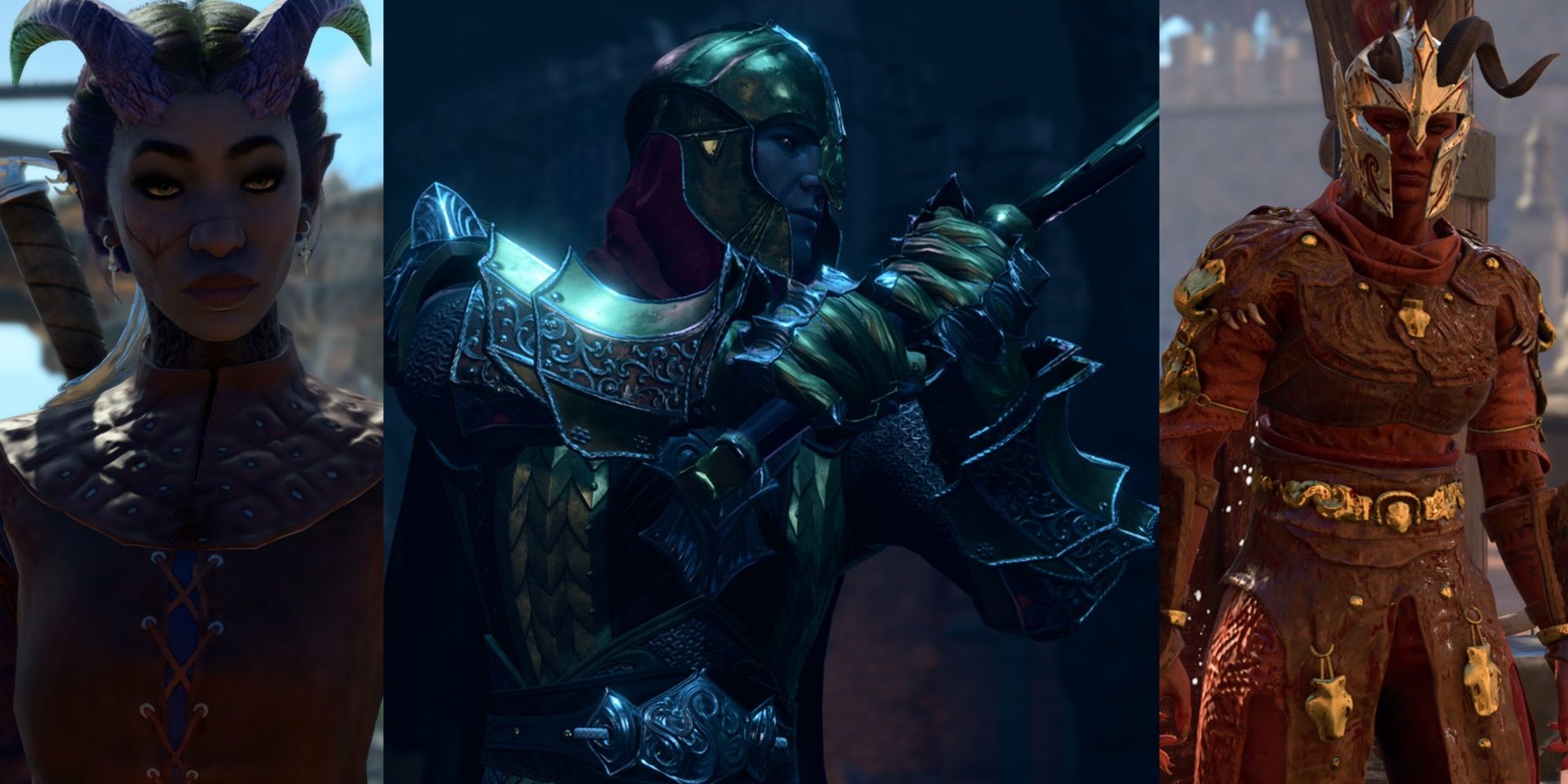
Related
Baldur’s Gate 3: Best Subclasses, Ranked
Every class in Baldur’s Gate 3 has a variety of subclass choices, and these are the best options players can choose.
With twelve classes available, there are plenty of different combinations of classes a player can multiclass in Baldur’s Gate 3. However, some classes are much better suited to each other than others. These are by far the best multiclass combinations in BG3.
Updated on November 1, 2024, by Rhenn Taguiam: With Baldur’s Gate 3 still receiving Hotfixes and updates to enhance a player’s overall gameplay experience throughout Faerun, the acclaimed RPG proves that there’s still room for playthroughs of all kinds – whether good, evil, or those featuring wild multiclass combinations. Fans of Baldur’s Gate 3 who want to take their gameplay to the next level might want to check just how each multiclass combination works in maximizing their character’s potential. However, beyond the conceptual benefits, Baldur’s Gate 3 players may also be interested in checking out exactly what Actions, Spells, and even Features of each Class component synergize with each other to achieve interesting combat effects.
Dual and multi-classing aren’t available in Explorer mode. Players have to grapple with the advanced difficulty of Balanced, Tactician, or Honor mode.
18 Monk & Barbarian
Full Control And Plenty Of Hits
- Subclasses: Way of the Four Elements Monk, Wildheart Barbarian
Players who combine the classes of Monk and Barbarian will have full control over their unit’s emotions. Not only will players be able to Rage, causing them to take less damage while also dealing more, but they will be able to attack multiple times during a turn, and since both classes wear little to no armor, the lack of AC isn’t an issue.
Players will initially have a multi-attack through either one of the classes, as long as they have them at Level 5, then they can perform at least one unarmed attack as long as they have hit. If players want to take this a step even further, they could become a Thief Rogue too, to deal with two unarmed attacks.
Synergy Of Four Elements Monk & Wildheart Barbarian
Transform the Barbarian’s Rage into something that can be felt across the battlefield courtesy of the Monk’s innate battlefield control potential. Unarmored Movement (Monk, Level 2) combined with Elk Heart (Wildheart, Level 3) can greatly increase the player’s Movement Speed and reach enemies that would be otherwise difficult to get to.
Single-target domination is the name of the game here, as players can enjoy dishing out raw power with the Monk’s newfound elemental abilities (Four Elements, Level 3) combined with Reckless Attack (Barbarian, Level 2).
17 Sorcerer & Bard
A Charismatic Caster
- Subclasses: Storm Sorcery and College of Valor
Both of these classes use Charisma as their spellcasting modifier, so it’s a natural choice that’s ideal for a player new to the concept of multi-classing. The steps required to raise two important skill stats aren’t needed, and instead, the whole build can focus on a single one, which also includes choices for Feats and gear.
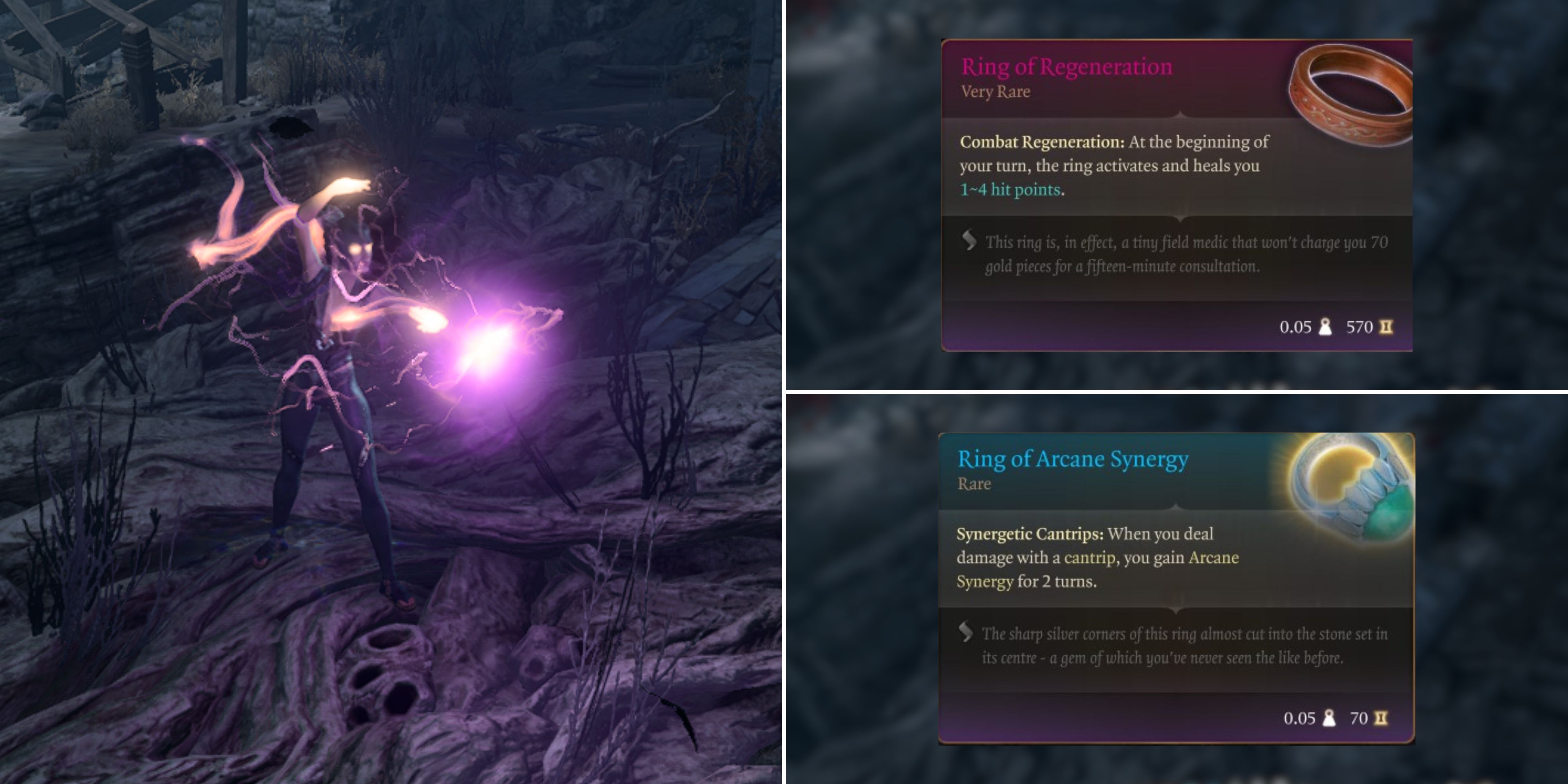
Related
Baldur’s Gate 3: 7 Best Rings for Casters
In Baldur’s Gate 3, Rings are equippable accessories with unique buffs and special effects. This list covers the best rings for spellcasters.
Storm Sorcery is a nice combination here because it gives the Sorcerer the power of flight once they start their turn, which means they have a lot of freedom when it comes to where they want to be on the battlefield. The College of Valor covers an equal amount of casting and fighting power, so this works whether or not one’s Bard is a healer, a DPS caster, or a melee fighter.
Synergy Of Storm Sorcerer & Valor Bard
Utility with a dash of punishment is the way to go for this build, as Tempestuous Magic (Storm Sorcerer, Level 1) enables Sorcerers to travel after casing spells. When combined with Quickened Spell Metamagic (Sorcerer) and Bardic Inspiration (Bard, Level 1), this allows the Bard to buff allies while still having enough juice to damage opponents with a deadly array of Spells.
Thanks to the Proficiencies of the Bard, the ordinarily-frail Sorcerer can stay in mid-to-long-range with relative confidence in their survivability – a must-have for players who want their Bard/Sorcerer combo to be just as deadly as they are supportive.
16 Warlock & Rogue
A Sneaky Spellcaster
- Subclasses: The Fiend Warlock, Arcane Trickster Rogue Subclass
Baldur’s Gate 3 multiclass options cover all grounds, including those who wish to be a spellcaster while also keeping in the shadows. Warlocks are deadly Spellcasters that can regain their spell slots with a simple short rest.
This combined with the likes of a rogue can lead to gaining the surprise of enemies by keeping them in the shadows until they have found the perfect spot. Besides this, players can have even more spells by choosing the Arcane Trickster subclass, though these spells can only be regained with a long rest.
Synergy Of Fiend Warlock & Arcane Trickster Rogue
The Arcane Trickster Rogue’s bag of stealthy tricks becomes considerably enhanced with the darker powers of the Fiend Warlock. Thanks to Dark One’s Blessing (Warlock, Level 1), the Rogue is practically guaranteed survivability with Temporary Hit Points per enemy killed. And thanks to Hex (Spell), the Rogue can be practically guaranteed a Sneak Attack.
Unlike traditional Arcane Tricksters who need to recharge during Long Rests, the Warlock’s Pact Magic allows them to regain Spell Slots on a Short Rest, ensuring that the Rogue is always ready with deadly Spells or even nifty utilities like Shield or Mage Hand should the opportunities arise.
15 Cleric & Fighter
Max Damage Multiple Times
- Subclasses: Tempest Domain Cleric, Battle Master Fighter
Cleric and Fighter are a surprisingly deadly combination, especially when choosing the Cleric Domain of Tempest. With this domain chosen, players can use their channel divinity to deal the maximum amount of damage from a lightning or thunder spell.
At later levels, this can be combined with an action surge to deal a large amount of damage twice to an enemy, leading many to fall in a single turn of combat. With 5 levels in Fighter, the player’s unit will become a great front-line fighter that can wield a great sword and heavy armor while casting spells.
Synergy Of Tempest Cleric & Battle Master Fighter
Instead of the Battle Master Fighter being a traditional tank unit with their Maneuvers, the added spellcasting of the Tempest Cleric provides them with much-needed utility and crowd control potential.
Channel Divinity: Destructive Wrath (Tempest Domain, Level 2) enables Clerics to maximize damage from thunder and lightning spells and means that AOE attacks like 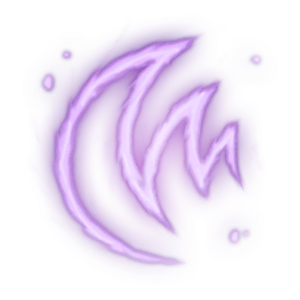 Thunderwave and
Thunderwave and 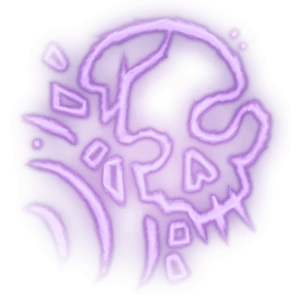 Shatter become extra efficient in taking down pesky enemies.
Shatter become extra efficient in taking down pesky enemies.
14 Monk & Rogue
An Incredibly Mobile Unit
- Subclasses: Thief Subclass Rogue, Way of the Four Elements Monk
Unlike Dungeons and Dragons, Monk has seen itself be completely transformed, becoming a class that players have enjoyed experimenting with. BG3 has plenty of simple multiclass options, and therefore, combining Monk with Rogue is all benefits with no drawbacks, provided that gamers don’t mind the almost total lack of AC.
Allowing the player to use dash as a bonus action through multiclassing with Rogue will give a Monk far more mobility on the battlefield. This character will essentially be able to reach any foe they can spot on their turn, and still be able to attack.
Synergy of Thief Rogue, Four Elements Monk
Despite the seemingly odd combination, the Four Elements Monk gets additional combat prowess with the quick and nimble limbs of the Thief Rogue – specifically their Fast Hands (Rogue, Level 3). Being able to get an additional Bonus Action can do wonders on the battlefield, as not only can the Monk use this to Dash their way into battle and out of danger, but they can use it to maximize their Martial Arts.
Whipping out Flurry of Blows (Monk, Level 1) right after Sneak Attack (Rogue, Level 1) can practically guarantee that enemies will die even if the Sneak Attack doesn’t kill them the first time around. The Four Elements’ spells can also give players a means of slightly manipulating the battlefield when needed.
13 Paladin & Cleric
A Great Defensive Unit
- Subclasses: Oath of Vengeance Paladin, Tempest Domain Cleric
Playing as simply a Paladin is already an amazing choice, due to its high defense and interesting spell options. Combining this with other classes like Cleric can only give the player more versatility.
Since the Cleric uses the same modifier for their spells, a Paladin with this multiclass has even more divine powers available to them. While the Paladin may already have some of these spells, being able to explore other avenues to create by far the holiest of knights. This can make for not only a great class in battle but also a brilliant option to role-play.
Synergy Of Vengeance Paladin & Tempest Cleric
Thanks to the Tempest Cleric’s combat bonuses, a Vengeance Paladin can get more out of their kit by ensuring enemies are continuously kept at bay with a barrage of utility.
Channel Divinity: Destructive Wrath (Cleric, Level 2) alone can maximum lightning and thunder damage of spells like  Thunderous Smite (Paladin) and Shatter (Cleric), allowing players to deal devastating damage, with Thunderbolt Strike (Cleric, Level 6) being an instant enemy mover to keep threats at bay.
Thunderous Smite (Paladin) and Shatter (Cleric), allowing players to deal devastating damage, with Thunderbolt Strike (Cleric, Level 6) being an instant enemy mover to keep threats at bay.
12 Rogue & Ranger
A Stealthy Damage Dealer
- Subclasses: Assassin Subclass Rogue, Gloomstalker Ranger
Rogues are known for their stealthy nature, which makes them a great choice for those who wish to sneak around and land a critical hit. Meanwhile, Rangers attack from a distance, though they are also likely to catch their opponents by surprise.
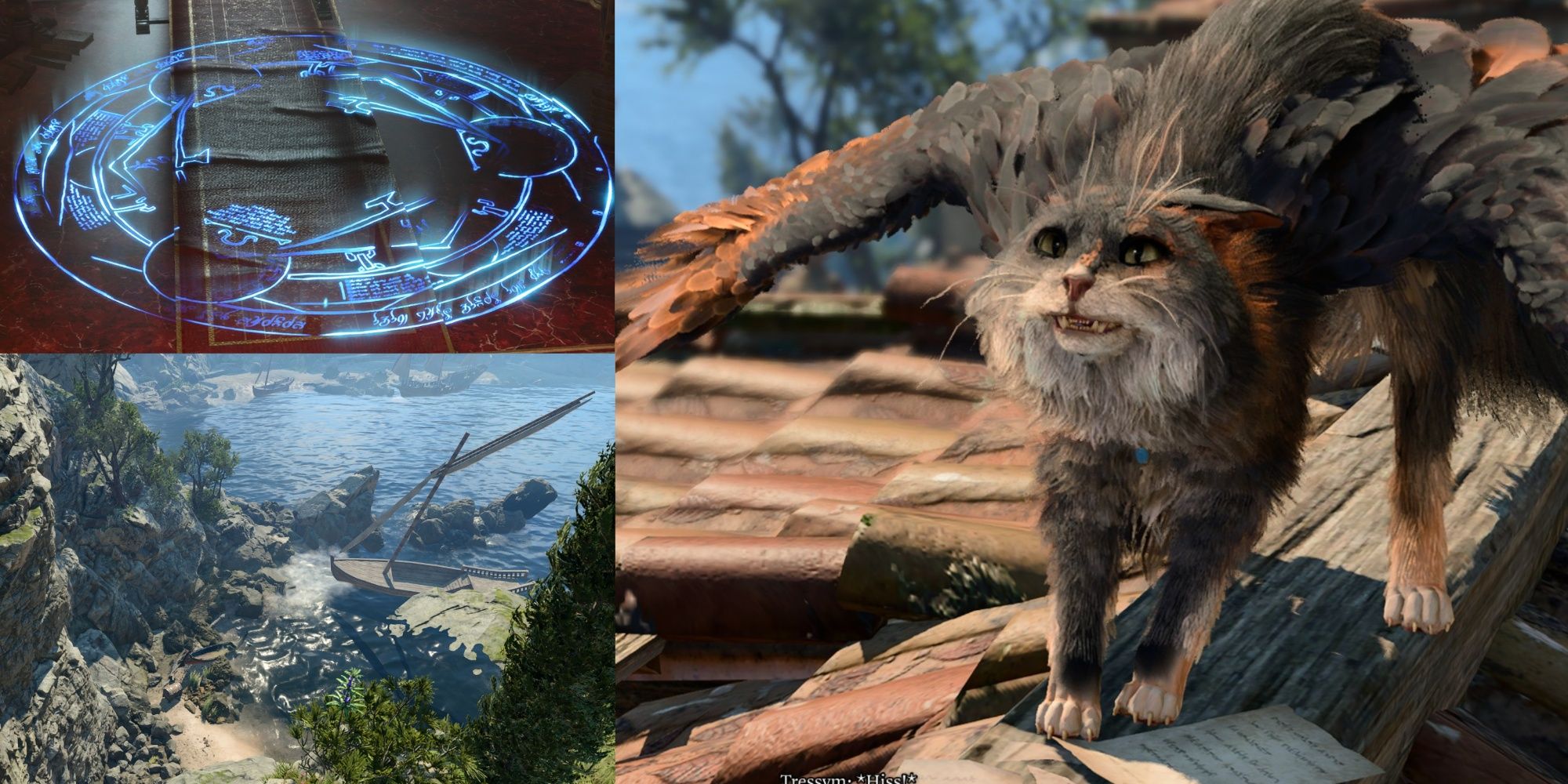
Related
Baldur’s Gate 3: 6 Hidden Secrets In Act 3
There are plenty of secrets spread throughout Act 3 of Baldur’s Gate 3; here are some that players might have missed.
Combining these two classes can make for an incredibly stealth archer, especially if the player considers the ranger subclasses Hunter or Gloom Stalker, which are naturally more stealth-based. Players would mostly be leveling into Rogue to keep their stealth attack criticals high.
Synergy Of Assassin Rogue & Gloomstalker Ranger
Capitalize on ambushing foes by combining the innate bonuses of the Assassin Rogue and Gloomstalker Ranger. Whereas the Assassinate (Assassin, Level 3) practically guarantees criticals on surprised enemies, Dread Ambusher (Ranger, Level 3) can grant additional damage and an Extra Attack on the first round, essentially allowing the unit to double down on threat elimination if the first Sneak Attack didn’t secure the kill.
Umbral Sight from the Gloomstalker boosts stealth and provides Invisibility against Darkvision-wielding foes, ensuring that the Assassin can still sneak upon enemies in dim lighting.
11 Sorcerer & Warlock
A Sorcerer With Rechargeable Spells
- Subclasses: The Fiend Warlock, Draconic Bloodline Sorcerer
An important factor that a player must keep in mind when combining classes is what their current attributes look like. While gamers don’t require specific attributes to gain a class, this second role can be useless if the player doesn’t have the modifiers to support them. Therefore, in the case of spellcaster classes, players should combine classes that use the same stat as their modifier to cast spells.
A great example of this is Sorcerer and Warlock, since they both use Charisma for their magic. This allows a player to have access to even more spells from both while having just as much power for either of them. Using Warlock in such a way also means that when a player short rests, they gain back some of their spell slots, permitting them to continue casting these deadly spells.
Synergy Of Fiend Warlock & Draconic Sorcerer
Survivability and utility are the name of the game with this Multiclass combination. Whereas Draconic Resilience (Draconic Bloodline) already boosts AC and Maximum HP, the Dark One’s Blessing (Fiend Warlock) also provides the unit with the opportunity to constantly get HP when killing targets, practically guaranteeing safety.
Thanks to Draconic Bloodline: Fire (Draconic Bloodline, Level 6), fire-damaging spells like Fireball and Hellish Rebuke get a sizzling upgrade that transforms the Multiclass into an efficient DPS unit. Thanks to Metamagic (Sorcerer), players can even alter their approach to combat without breaking a sweat.
10 Fighter & Druid
A Tank Spellcaster
- Subclasses: Battle Master Fighter, Circle of the Moon Druid
Pairing Fighter with any class is a must, even if it’s only three levels. This is because of the overpowered nature of things like Action Surge, which allows a foe to attack twice. With even more levels in Fighter, a player can even unlock Multiattack.
Combining this with Druid can make for quite a versatile tank that combines combat prowess with also healing spells. This way, players can support themselves with more than just Second Wind. In addition, players can transform into a bear or other creature to save their health if needed.
Synergy Of Battle Master Fighter & Moon Druid
This multiclass combination creates a well-rounded unit that makes use of the Moon Druid’s potent Wild Shape options to transform into tanks. When out of their transformations, the Battle Master’s Maneuvers can control the flow of enemies to ensure that they remain the primary target of their foes. Action Surge practically allows the Moon Druid side to dish out utility as needed or focus on mauling enemies to submission.
9 Paladin & Ranger
A Strong Ranged Unit
- Subclasses: Oath of the Ancients Paladin, Hunter Ranger
Ranger has already proven to be a great second class for players to level up alongside one another. This isn’t just the case when playing as a rogue, as even the more tank-like characters can benefit from having some ranged skill.
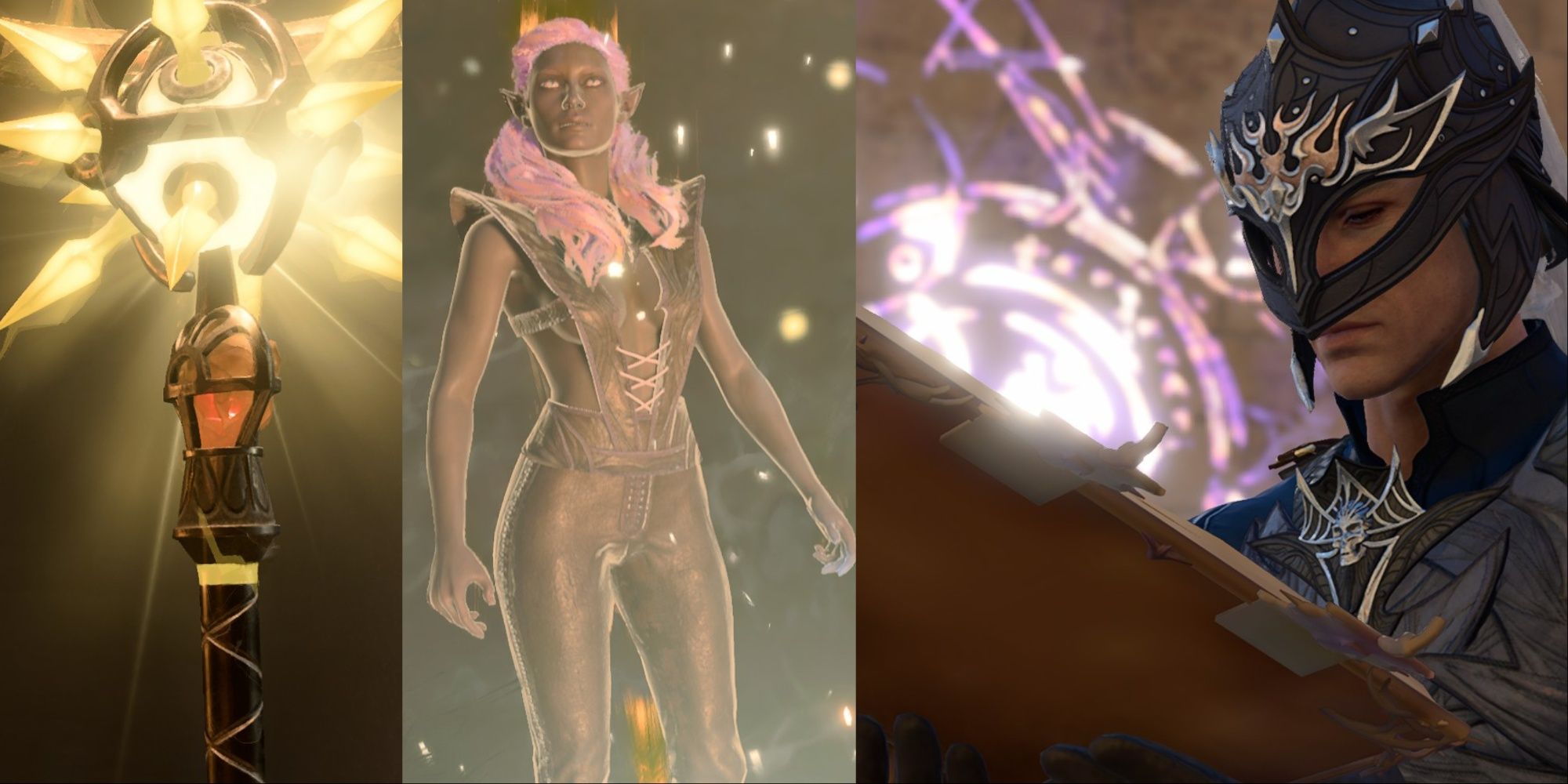
Related
Baldur’s Gate 3: 6 D&D Spells That Need To Be Added To The Game
While all the spells already available in Baldur’s Gate 3 can feel overwhelming, there are a few in 5e D&D that feel like they’re missing.
Multiclassing a Paladin with a Ranger will allow a player to remain one with the holy light, while also granting more versatility. Having the chance to hit enemies from a distance means a player is likely to always be attacking their opponents during their turn.
Synergy Of Ancients Paladin & Hunter Ranger
The nature orientation of the Oath of the Ancients and Hunter Ranger go beyond themes, as this allows the unit to focus on single-target combat. The Paladin’s Aura of Warding can provide nifty defensive options against spell damage, while the Ranger’s Colossus Slayer or Horde Breaker can enhance their ability to push through enemy lines.
With Divine Smite, the Paladin side of the Multiclass can enjoy enhanced attacks that can pulverize stronger foes while still enjoying the Ranger’s crowd control options.
8 Fighter & Barbarian
Multiple Attacks In One Turn
- Subclasses: Battle Master Fighter, Berserker Barbarian
Players don’t need to combine spellcasters or make melee classes more versatile with range. They can even combine pure melee classes for some interesting results. Fighter is arguably one of the best melee classes in Baldur’s Gate 3, especially for those new to the game.
Combining the multi-attack capabilities of the Fighter class with the chaotic rage of the Barbarian can allow a tank to deal immense damage to its foes. This is a lot easier to combine than many other classes because the two use similar weapons, and the result is magnificent.
Synergy Of Battle Master Fighter & Berserker Barbarian
Using the Battle Master’s Superiority Dice (Battle Master, Level 3) can provide the unit with combat versatility to position themselves for better attacks, something that the Rage (Barbarian 1) and its damage boosts can maximize for ultimate control over the battlefield.
The Berserker’s Frenzy, which grants an Extra Bonus Action Attack, and the Fighter’s Extra Attack and Action Surge can secure a character who can deal significant burst damage when assigned to fight a powerful opponent.
7 Druid & Cleric
- Subclasses: Circle of the Moon Druid, Light Domain Cleric
Like multiclassing Sorcerer and Warlock, Druid, and Cleric go well together, since both classes use Wisdom as their spell-casting modifier. This means that spells from both sides will always do the most amount of damage possible, as long as the player keeps leveling them up in this direction.
Players can make their Druid into one of the greatest spellcasting tanks possible with this combination. Choosing a Light Domain Cleric will open up the possibility of equipping heavy armor, giving the multi-classed Druid more defense. Players could take this a step further through Circle of the Moon, though any subclass will do perfectly with this combination.
Synergy of Moon Druid & Light Cleric
The versatility of the Druid and Cleric as both potential tanks and utility casters mesh well together with their specific Subclasses. The Moon Druid’s Wild Shape (Druid, Level 2) guarantees tanking while maintaining access to Spells.
Thanks to the Light Cleric’s Channel Divinity: Radiance of the Dawn (Cleric, Level 2), players have a nifty access to an early-level AOE, while the Moon Druid’s healing spells guarantee early-game support options.
6 Wizard & Fighter
A Solo Wizard
- Subclasses: Evocation Wizard, Eldritch Knight Fighter
Alternatively, players can combine spellcaster classes with those that only use melee weapons. This is something a player should plan from the beginning to make sure they have the right stats for it; otherwise, they are likely to be casting some weak spells.
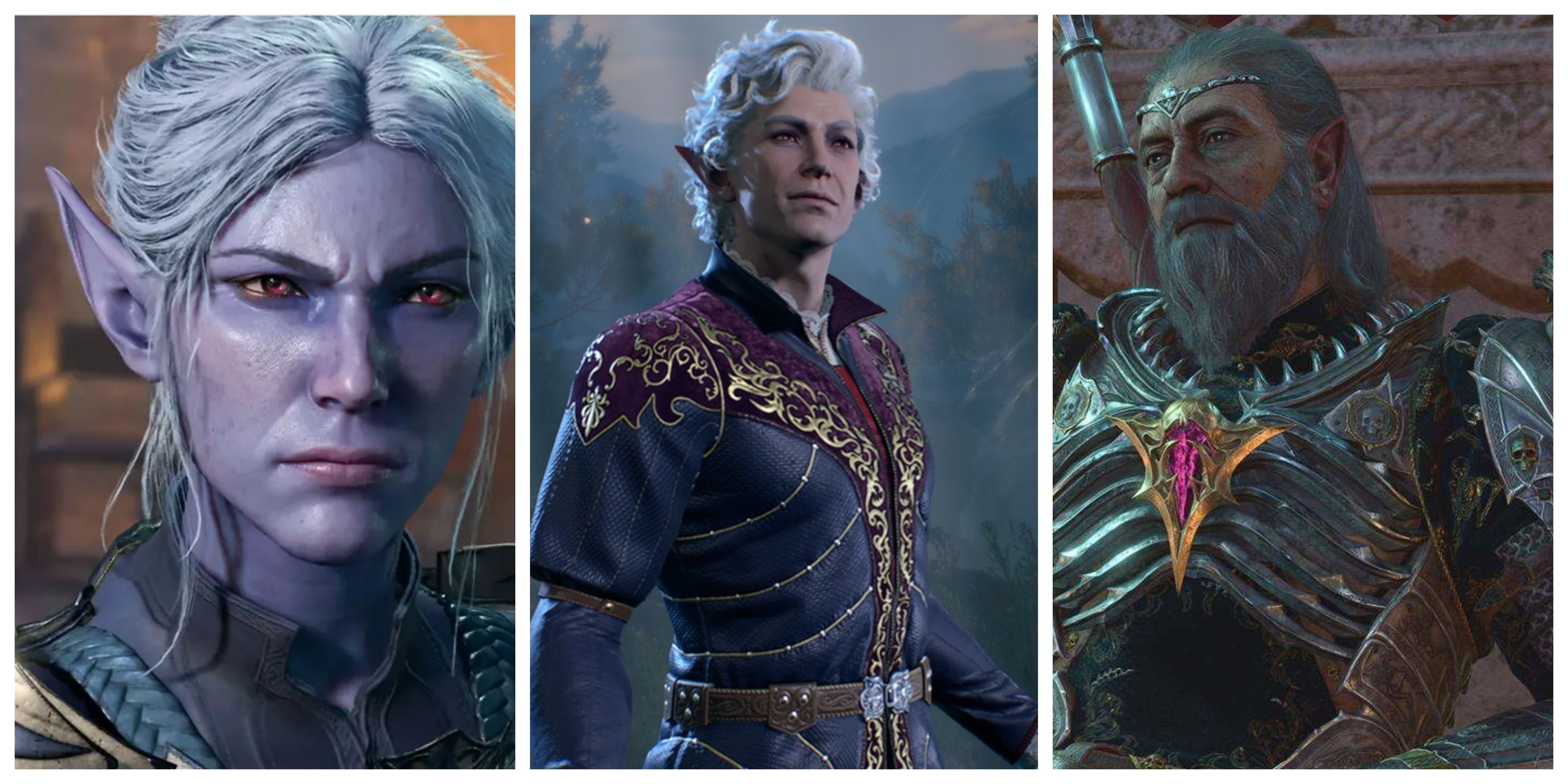
Related
Baldur’s Gate 3: 7 Things That Make No Sense In The Story
Whilst playing through Baldur’s Gate 3’s story, players might find some things that just don’t make a lot of sense.
Players should start as a Wizard and then put enough levels into Fighter to obtain Action Surge. This would allow players as a powerful mage to hit more than once while also being able to keep themselves alive using Second Wind.
Synergy Of Evocation Wizard & Eldritch Knight Fighter
Destruction is the name of the game for this combination, especially when the Eldritch Knight provides Armor and Weapon Proficiencies to allow them to face foes head-on while arming themselves with the damage potential of an Evocation Wizard.
Thanks to their Extra Attack, the Eldritch Knight can dish out multiple attacks in a single turn – especially when affected by their Evocation Wizard side’s Haste (Wizard, Level 3). This fast-paced playing style can transform the character into a spellslinging savant.
5 Druid & Ranger
Animals Fighting Beside An Animal
- Subclasses: Circle of the Moon Druid, Beast Master Ranger
Combining the properties of two of the most nature-oriented classes can make for an interesting adventure in BG3. Players would only need to get three levels in Ranger to achieve the Beast Master subclass, so they can summon their beast familiar. The rest of their levels can go into Druid.
Combining Wild Shape with this animal companion can leave enemies exposed, especially if exploiting the web terrain. A player is transformed into a spider, and their spider companion can rest easy on the webs. Meanwhile, their opponent has a disadvantage on all its attack rolls.
Synergy Of Moon Druid & Beast Master Ranger
Aside from the stellar imagery of a Moon Druid’s Wild Shape (Druid, Level 2) transforming them into a creature to fight alongside a Ranger’s Companion (Beast Master, Level 3) of their own, this Multiclass takes advantage of the Beast Master’s heavy-hitting damage and the Moon Druid’s utility potential.
Thanks to the Ranger’s Companion, players basically increase their damage output with a creature that attacks on their own turn. Being controllable creatures, they can distract enemies while the player releases spells.
4 Bard & Rogue
Expert At Everything
- Subclasses: College of Swords Bard, Thief Subclass Rogue
For players looking for pure chaos in their playthrough of Baldur’s Gate 3, a multiclass of Bard and Rogue is exactly the way to go. This combination is great for an individual who simply wants to be good at everything.
There isn’t a single roll that this combo can really fail, due to having expertise in almost everything. Taking the Rogue subclass of Thief and the Bard Subclass of College of Swords leaves the character with a lot of potential in battle to deal with some lethal hits.
Synergy Of Swords Bard & Thief Rogue
Baldur’s Gate 3 players can enjoy the combat utility of the College of the Swords and the nifty action economy of the Thief Rogue. Being able to use Flourish (Swords Bard, Level 3) can enhance the player’s combat prowess in different ways, something that Extra Attack (Bard, Level 6) and an Extra Bonus Action from Fast Hands (Thief, Level 3) can capitalize on with their additional damage output.
Sneak Attack (Rogue, Level 1) alone should incentivize the character to capitalize on first-turn advantages, finishing off opponents with their Flourishes if the first attack doesn’t kill them.
3 Sorcerer & Paladin
Paladin’s Defense With More Spells
- Subclasses: Draconic Bloodline Sorcerer, Oath of Vengeance Paladin
Paladins have a small handful of spells they can use due to the Oath they have taken. However, this hardy class can be made even greater through multiclassing with one of many spellcasting classes. One of the most tempting is Sorcerer, which shares the same spell modifier as the Paladin. This multiclass option gives the Paladin plenty of spells it didn’t originally have access to.
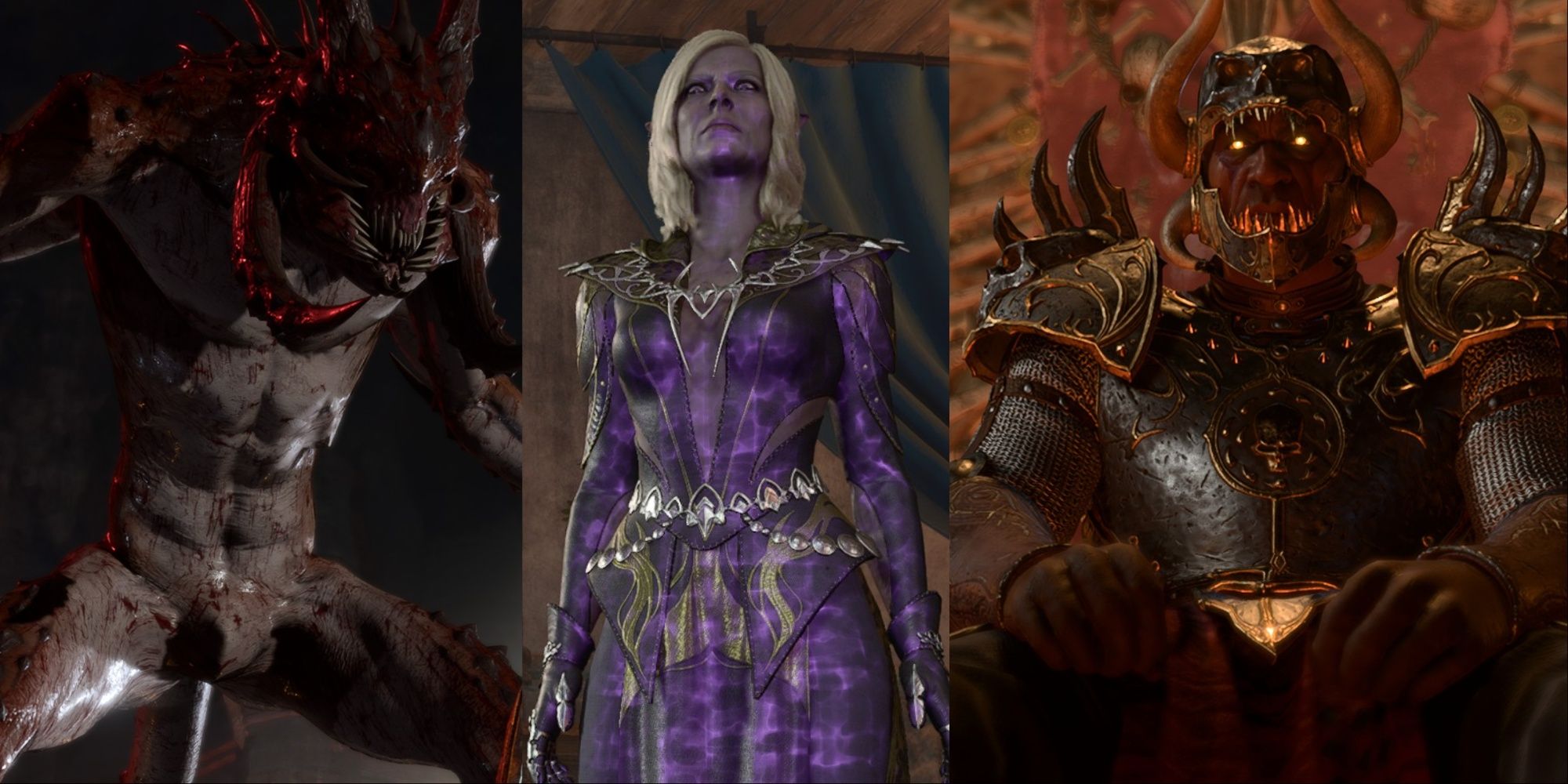
Related
8 Scariest Enemies In Baldur’s Gate 3
Of all the foes to face in Baldur’s Gate 3, these are the most frightening to behold.
Like combining Fighter and Wizard, this allows a spellcaster to have far more defense when it comes to battles, although this time the player would’ve already had experience using some spells in the past.
Synergy Of Draconic Sorcerer & Vengeance Paladin
While the Vengeance Paladin already enjoys a potent selection of Armor (and therefore higher AC), Draconic Resilience (Draconic Bloodline, Level 1) guarantees decent base AC even if they don’t wear armor. In combat, the Vengeance Paladin can use their Divine Smite (Paladin, Level 2) to consistently deal extra Radiant Damage on their attacks, or use the Draconic Bloodline’s Elemental Affinity (Draconic Bloodline, Level 6) to add more damage to their appropriately-thematic attacks.
Being a CHA-based Class, both the Sorcerer and Paladin sides of this multiclass build can enjoy potent bonuses to their rolls, making them a relatively safe tank-with-DPS choice.
2 Fighter & Paladin
- Subclasses: Battle Master and Oath of Devotion
This is a build for defenders and melee fighters who want some extra hitting power to go with their extra Actions and movement skills. Fighters have their bonus Action skills no matter what subclass they choose, and Battle Master is the one that allows the player a high amount of customization options.
Players can choose maneuvers for defense, offense, or organizing the battlefield. In addition to the Fighter skills that allow players to move around, there are the Paladin powers that include healing and buffing, along with handy spells for allies, like Holy Rebuke and 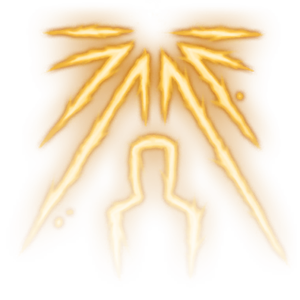 Sanctuary.
Sanctuary.
Synergy of Battle Master Fighter & Devotion Paladin
The Battle Master Fighter is already notable for its Maneuvers, taking control of the battlefield by being able to proc effects based on movements, attacks, and other conditions. When combined with the Devotion Paladin, players can now enjoy extra Radiant Damage with Divine Smite (Paladin, Level 2) with boosted potency, courtesy of Channel Divinity: Sacred Weapon (Paladin, Level 3) that strengthens their overall attack.
Thanks to their holy affinity, the Devotion Paladin’s other features like Lay on Hands (Paladin, Level 1) and access to effective utility can enhance their role as a sub-support unit while tanking hits.
1 Barbarian & Bard
Surprisingly Effective Support Barbarian
- Subclasses: Berserker Barbarian, College of Valour Bard
Two of the greatest as well as funniest classes to combine in not only Baldur’s Gate 3, and also Dungeons and Dragons, are Barbarian and Bard. Starting as a Barbarian, players will be using their rage to defend their team. With a couple of levels in Bard, the player can also support the rest of the party with some incredible tunes while also having access to spells.
A Bardbarian may sound silly, but it can be an interesting character to experience, especially since the character will have the charisma to convince others or the intimidation to force someone to do the player’s bidding. When all else fails, the player can still return to their rage to dispatch opponents.
Synergy Of Berserker Barbarian & Valor Bard
Players can improve the attack-oriented nature of the Berserker Barbarian with the utility of the College of Valor Bard, wherein Berserker’s Rage (Berserker, Level 1) adds overall damage output, while Frenzy (Berserker, Level 3) practically adds an Extra Attack as a Bonus Action on top of Extra Attack (Barbarian, Level 5).
With the Bard added into the mix, Combat Inspiration (Valor Bard, Level 3) can boost the team’s overall combat efficiency, while recovery spells like 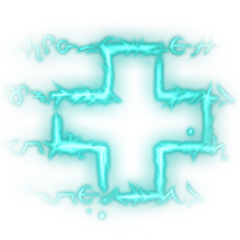 Healing Word (Bard, Level 1) enables the tanking Berserker to heal allies in dire situations.
Healing Word (Bard, Level 1) enables the tanking Berserker to heal allies in dire situations.
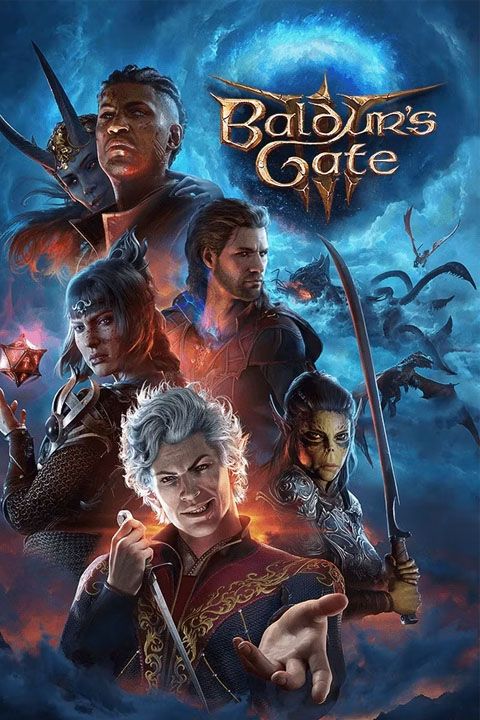
- Released
- August 3, 2023
- OpenCritic Rating
- Mighty
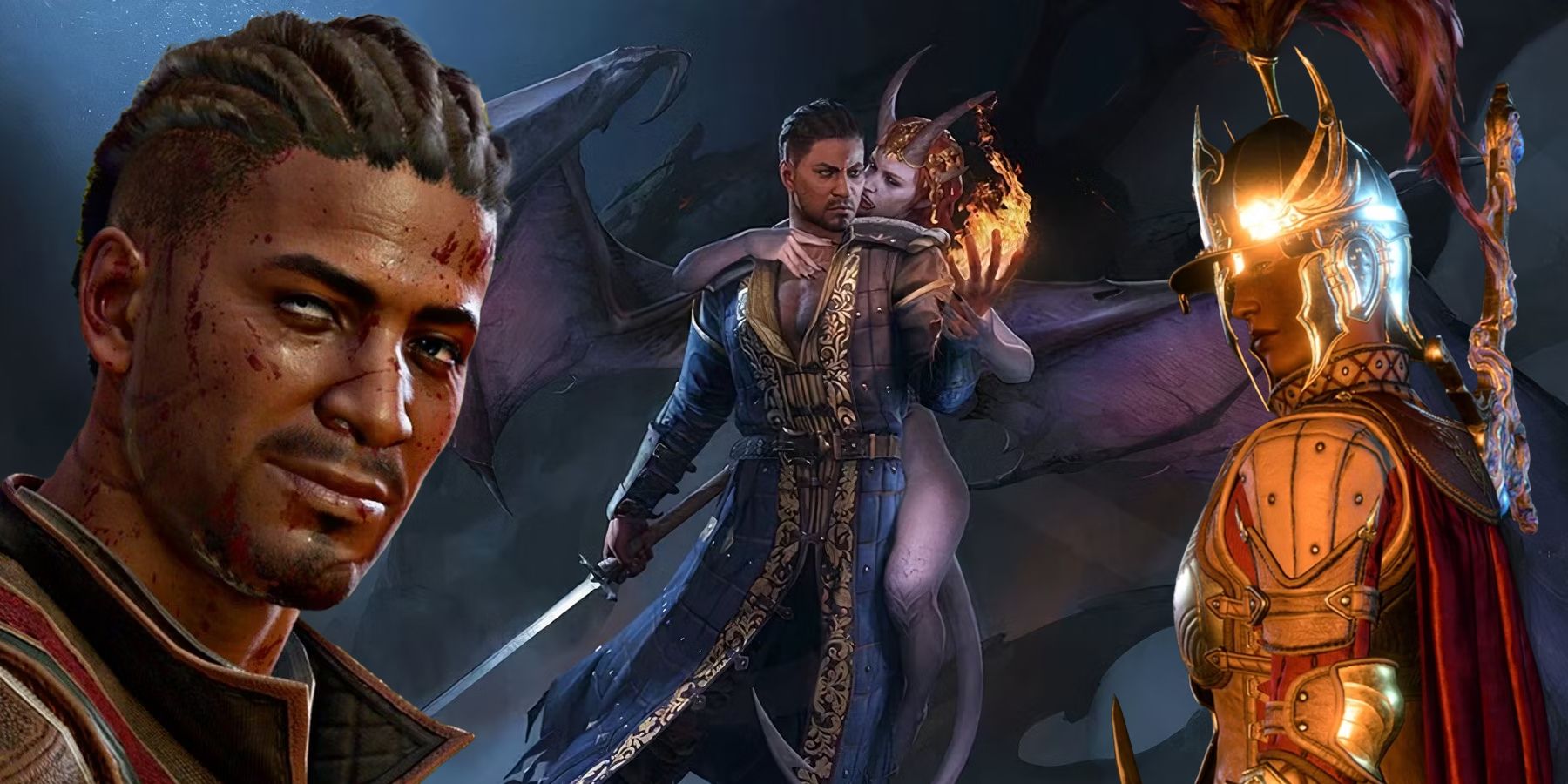

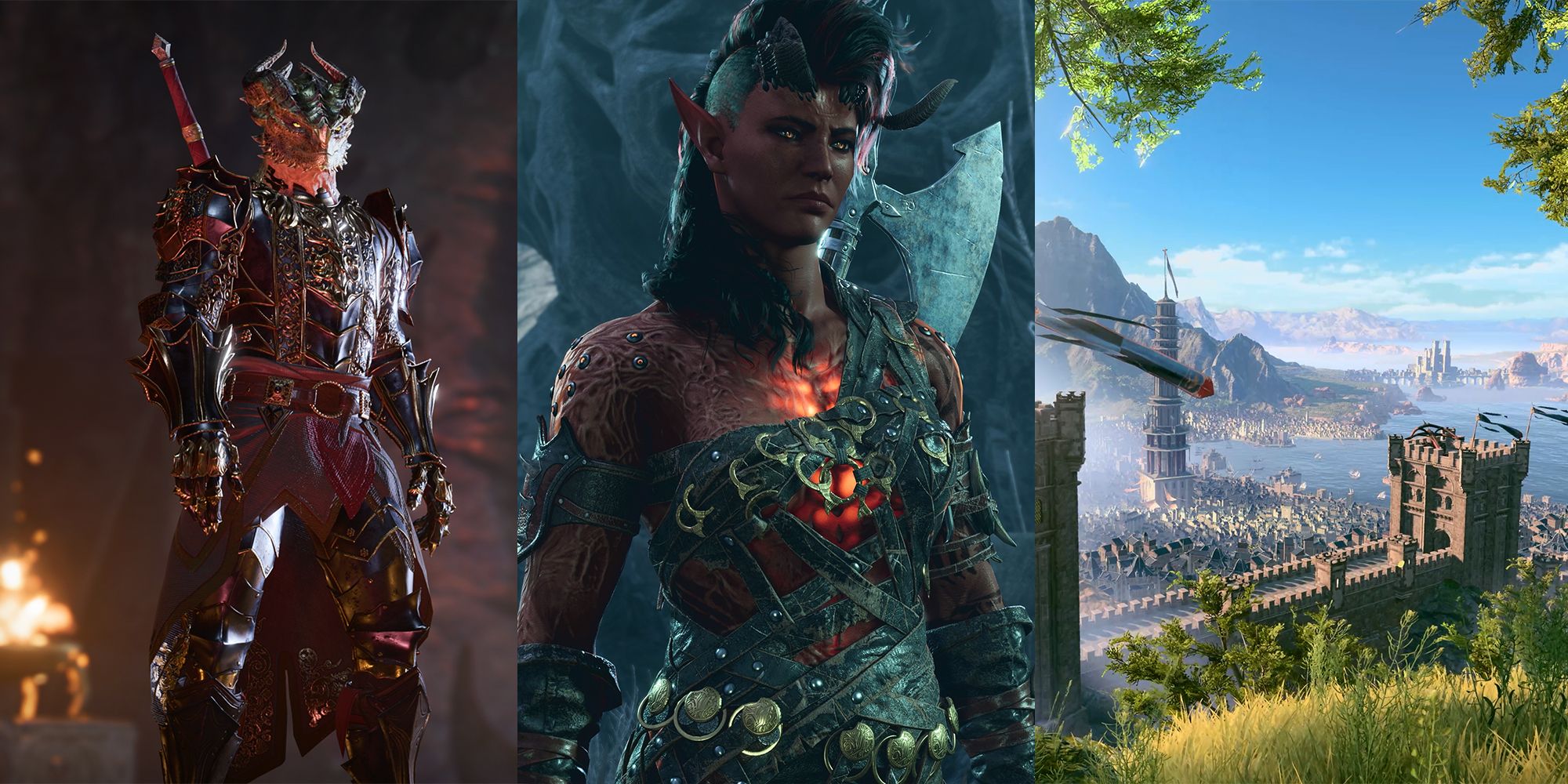
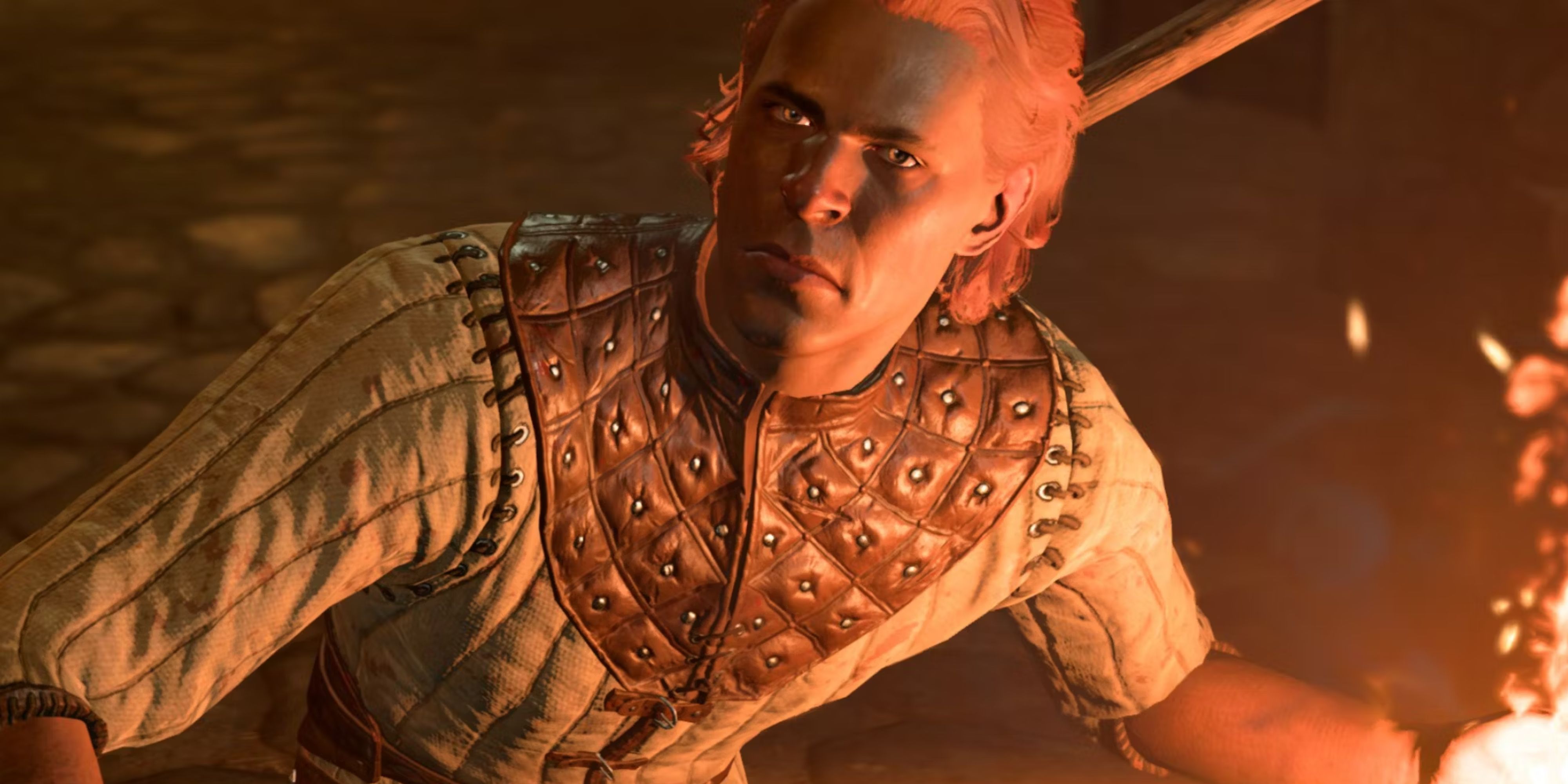
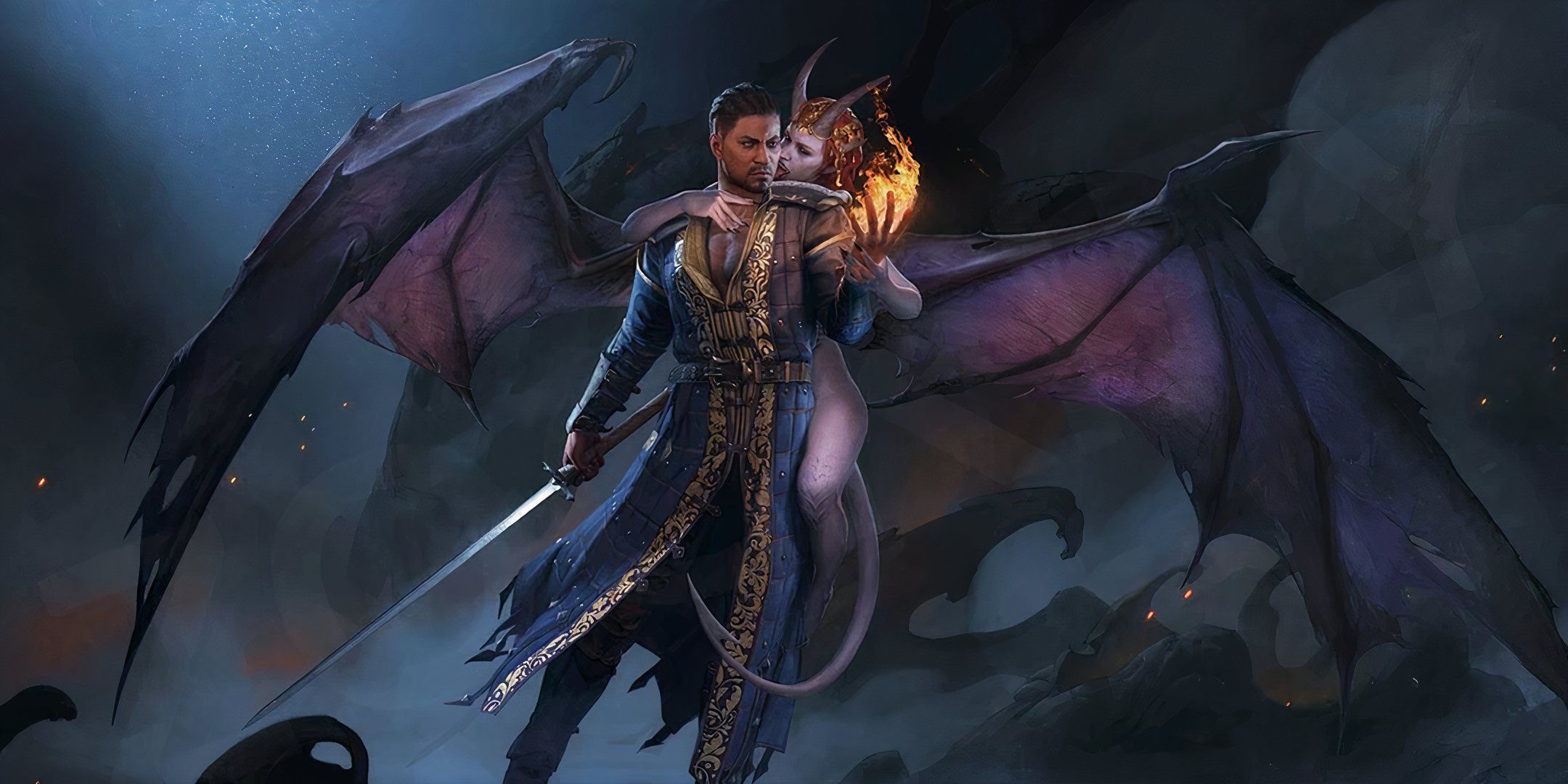
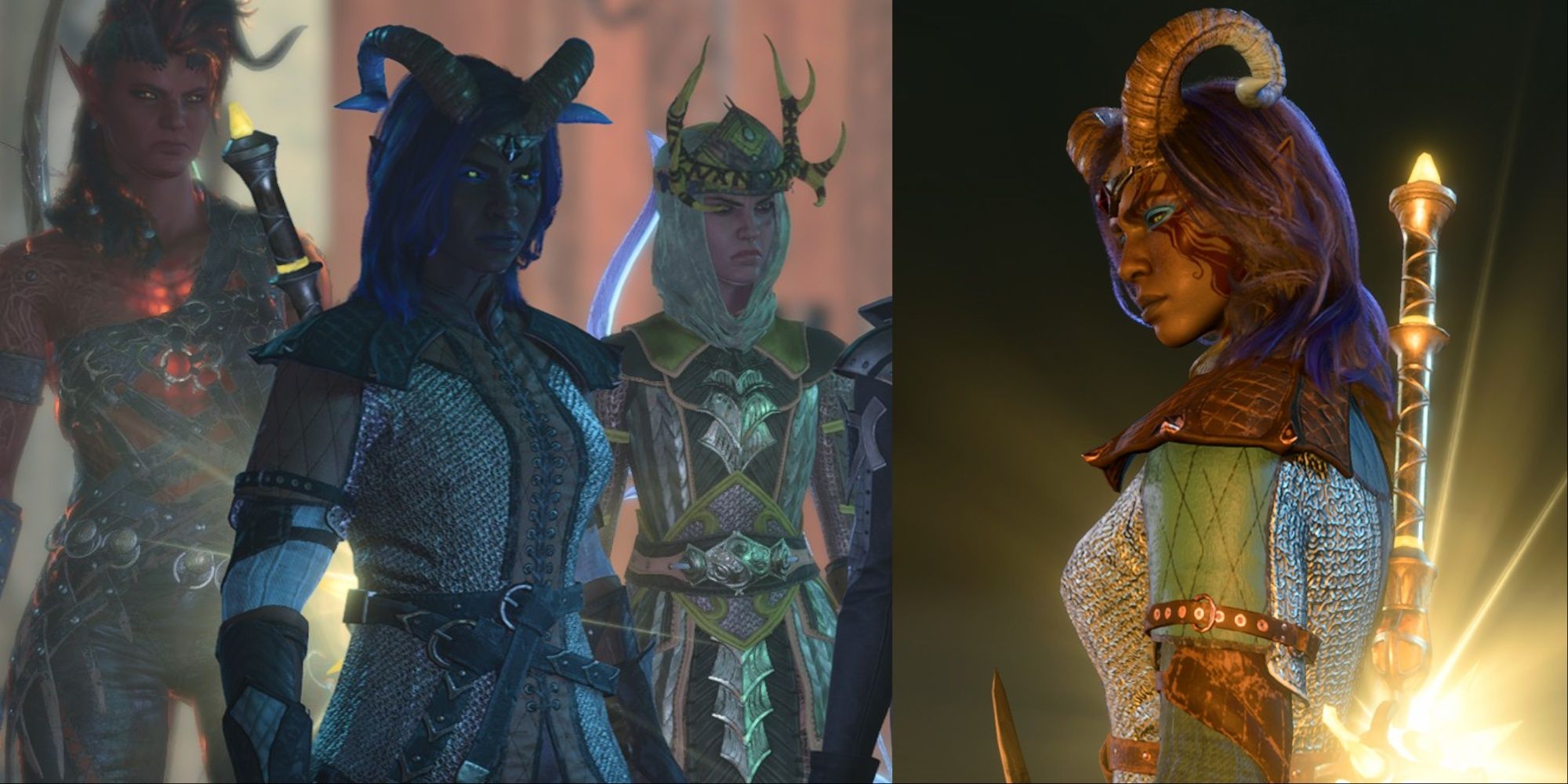
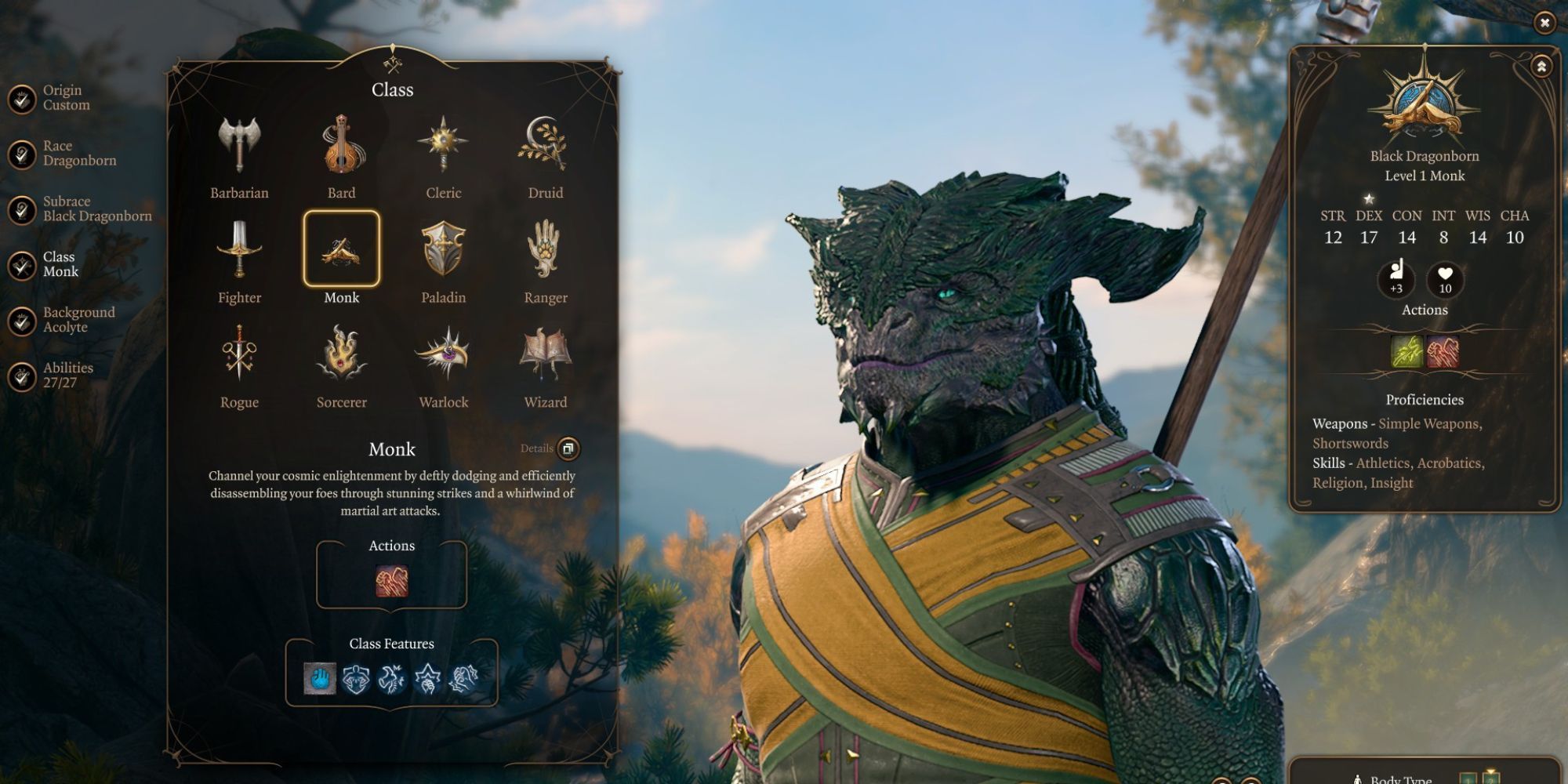
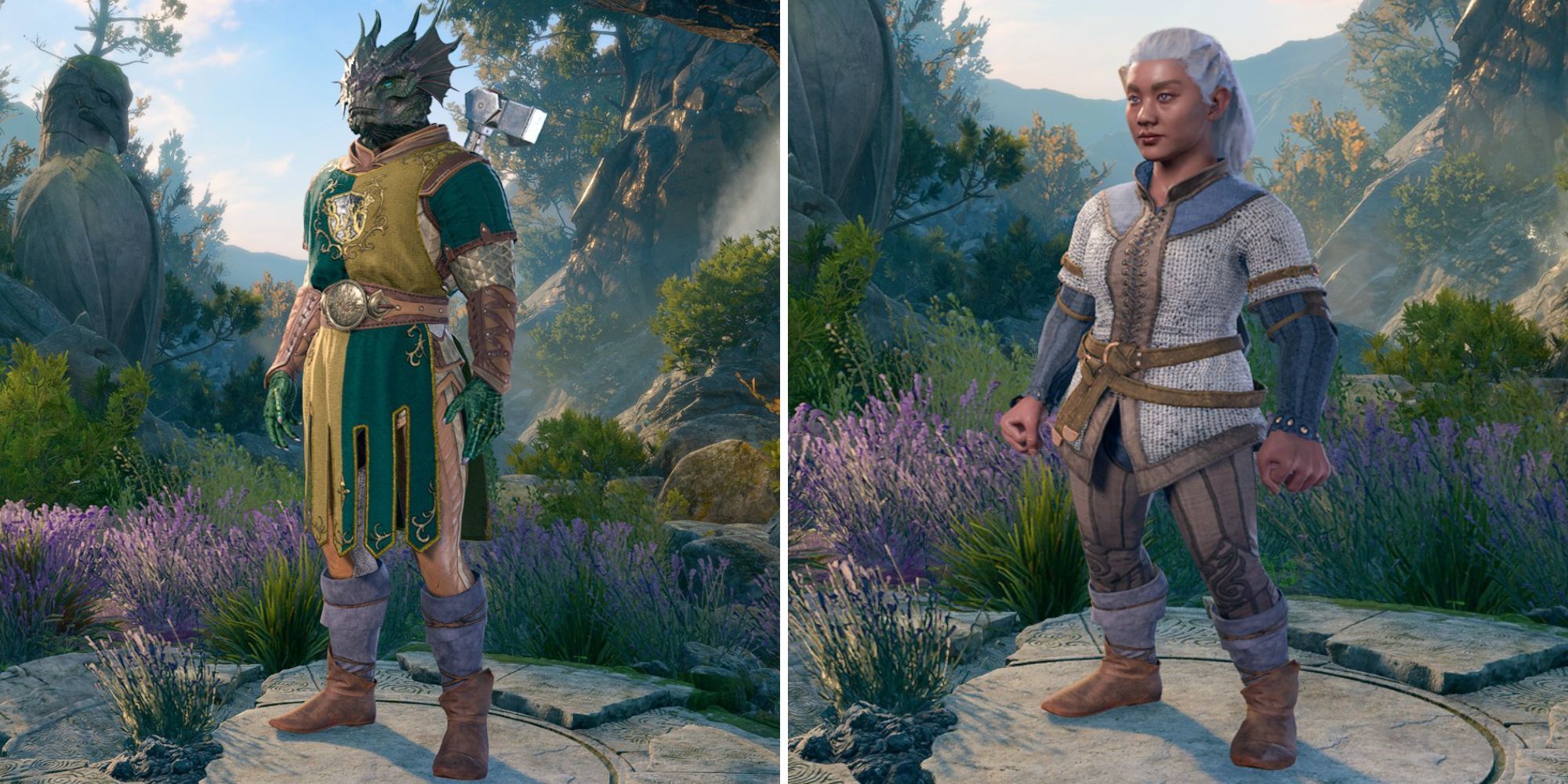
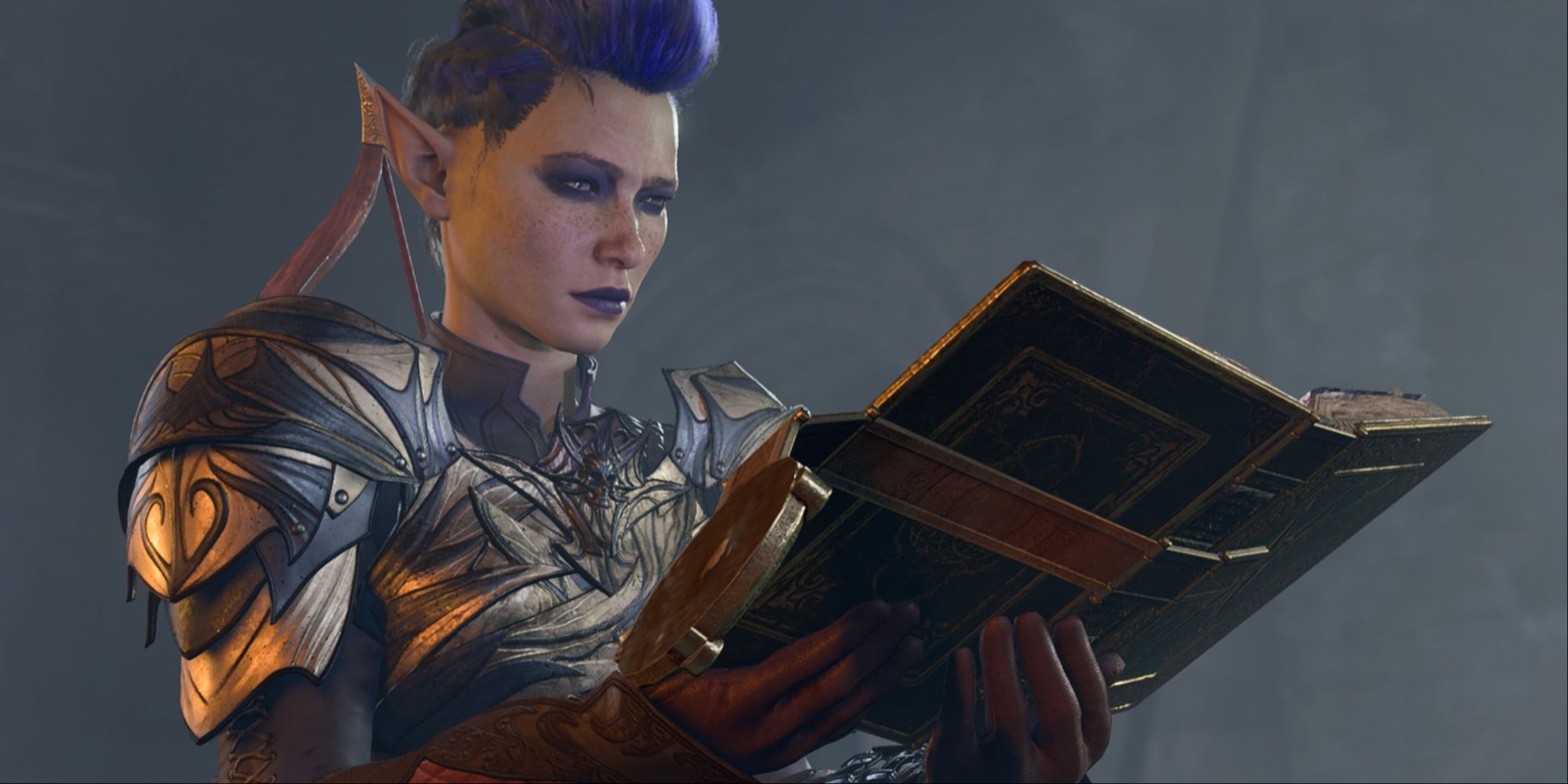
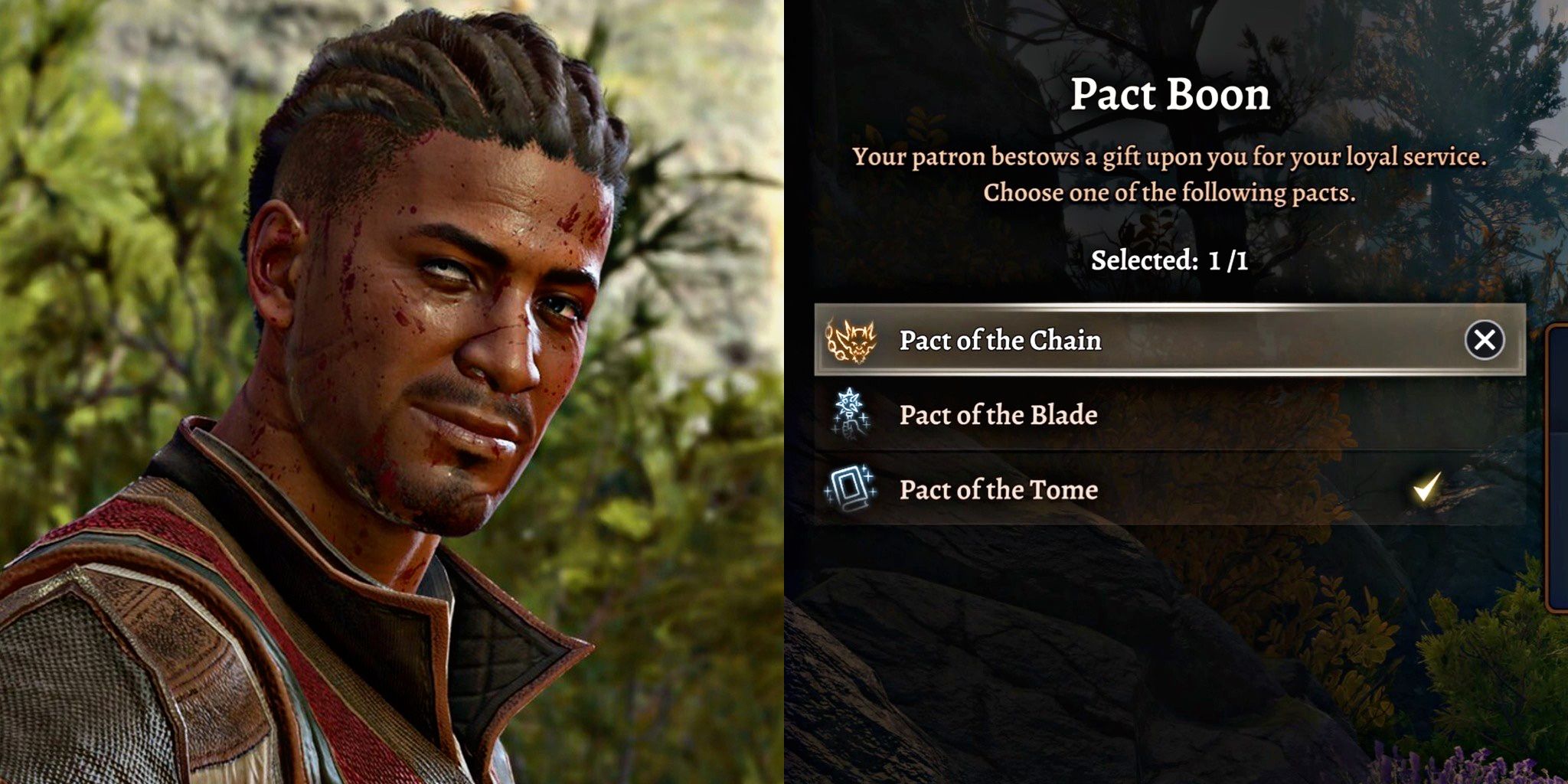
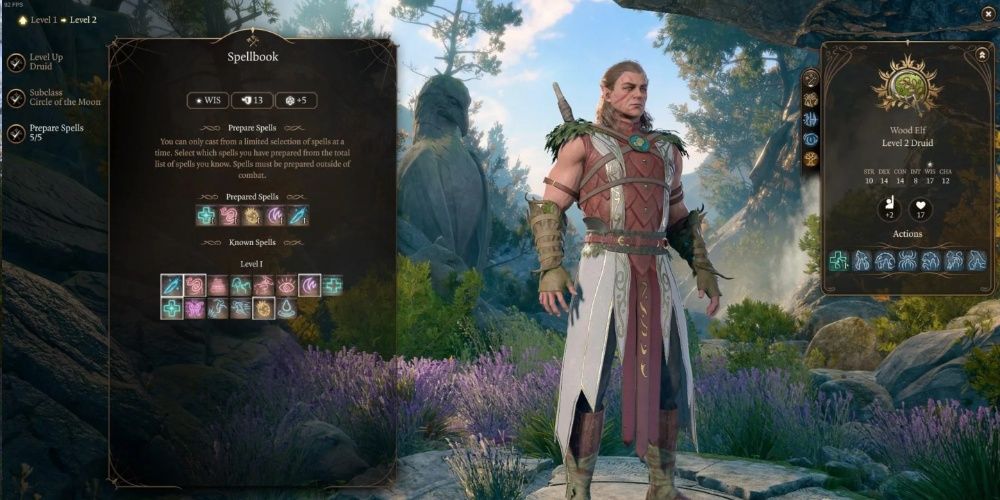
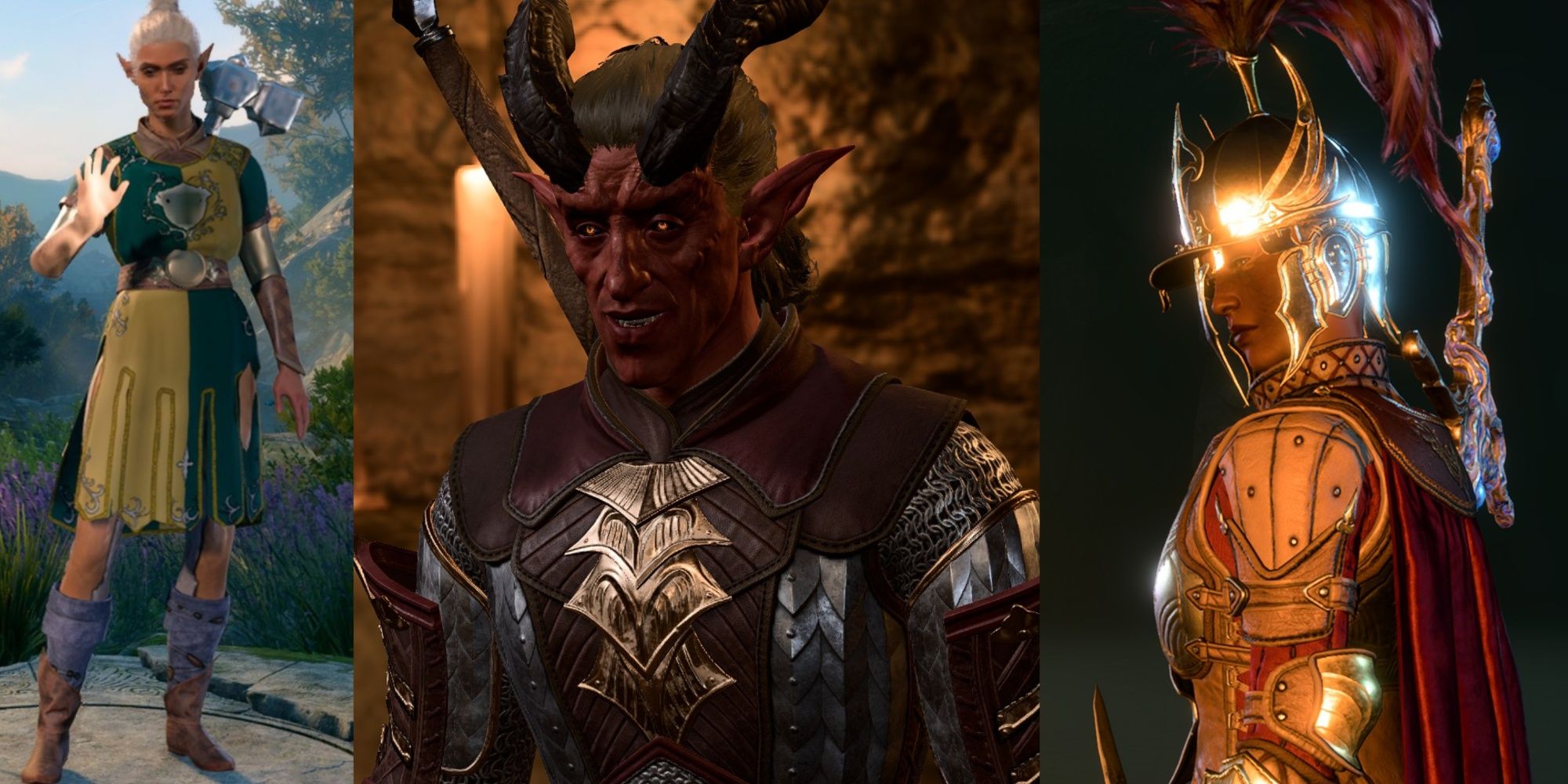
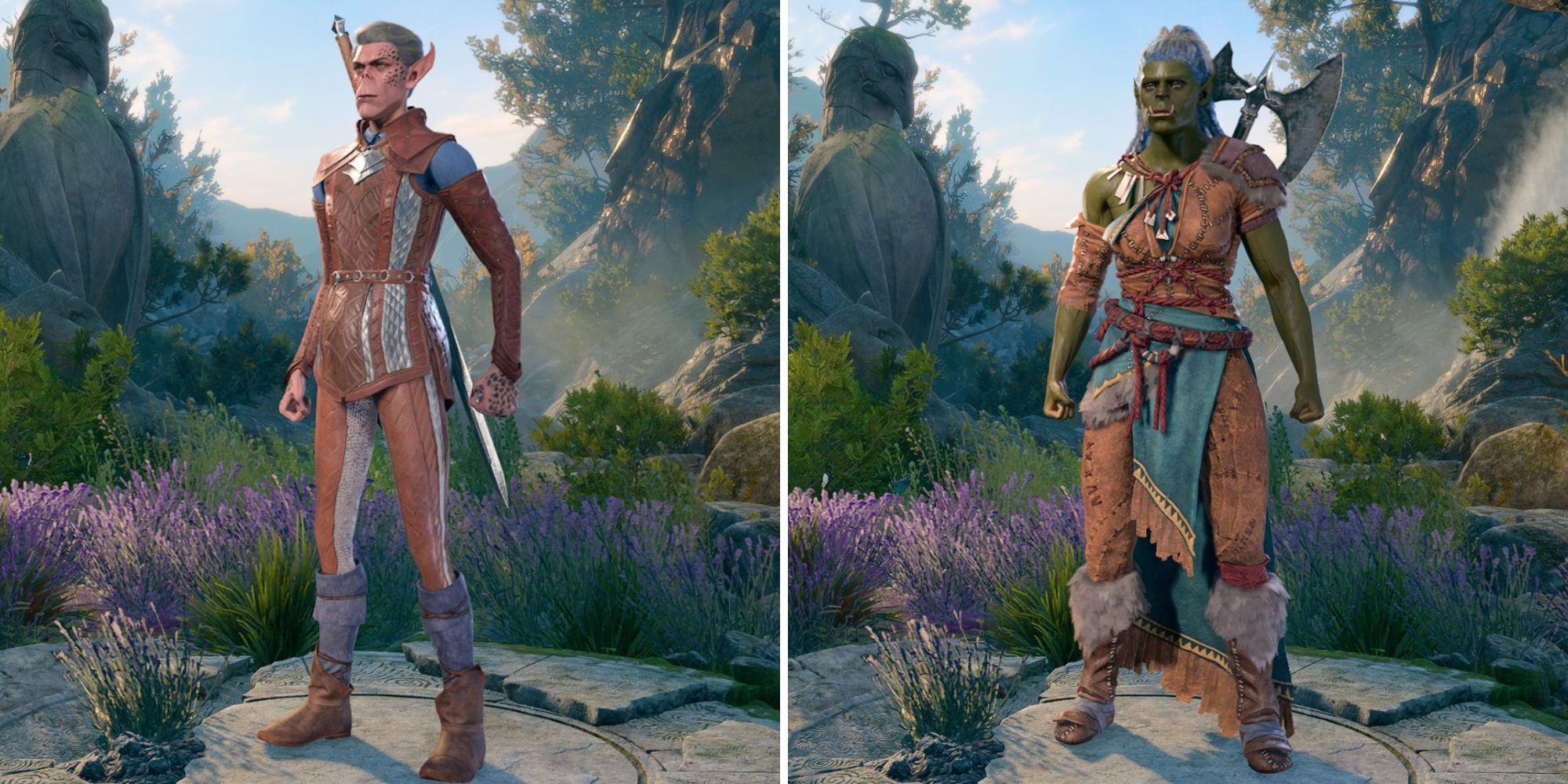
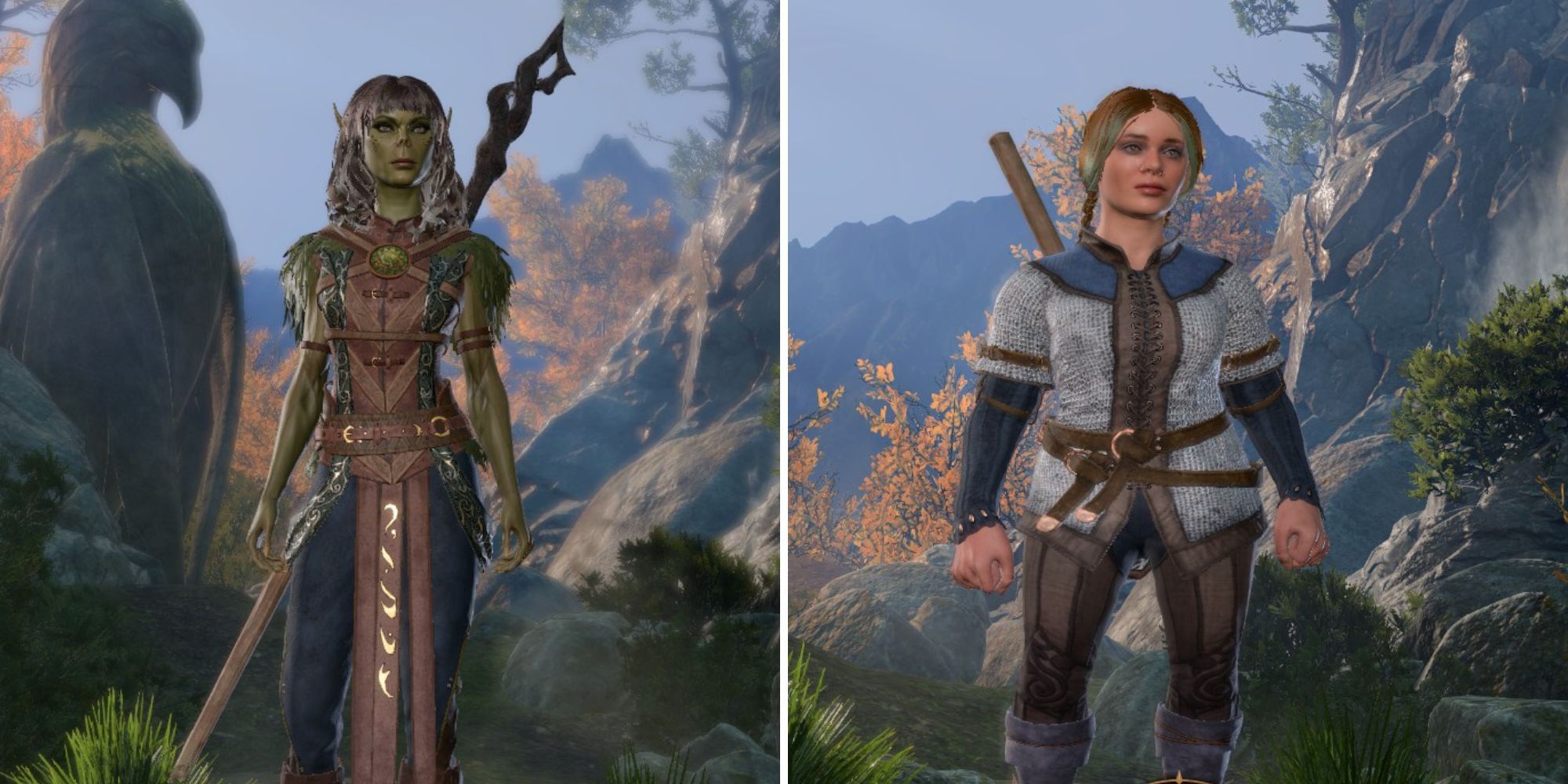
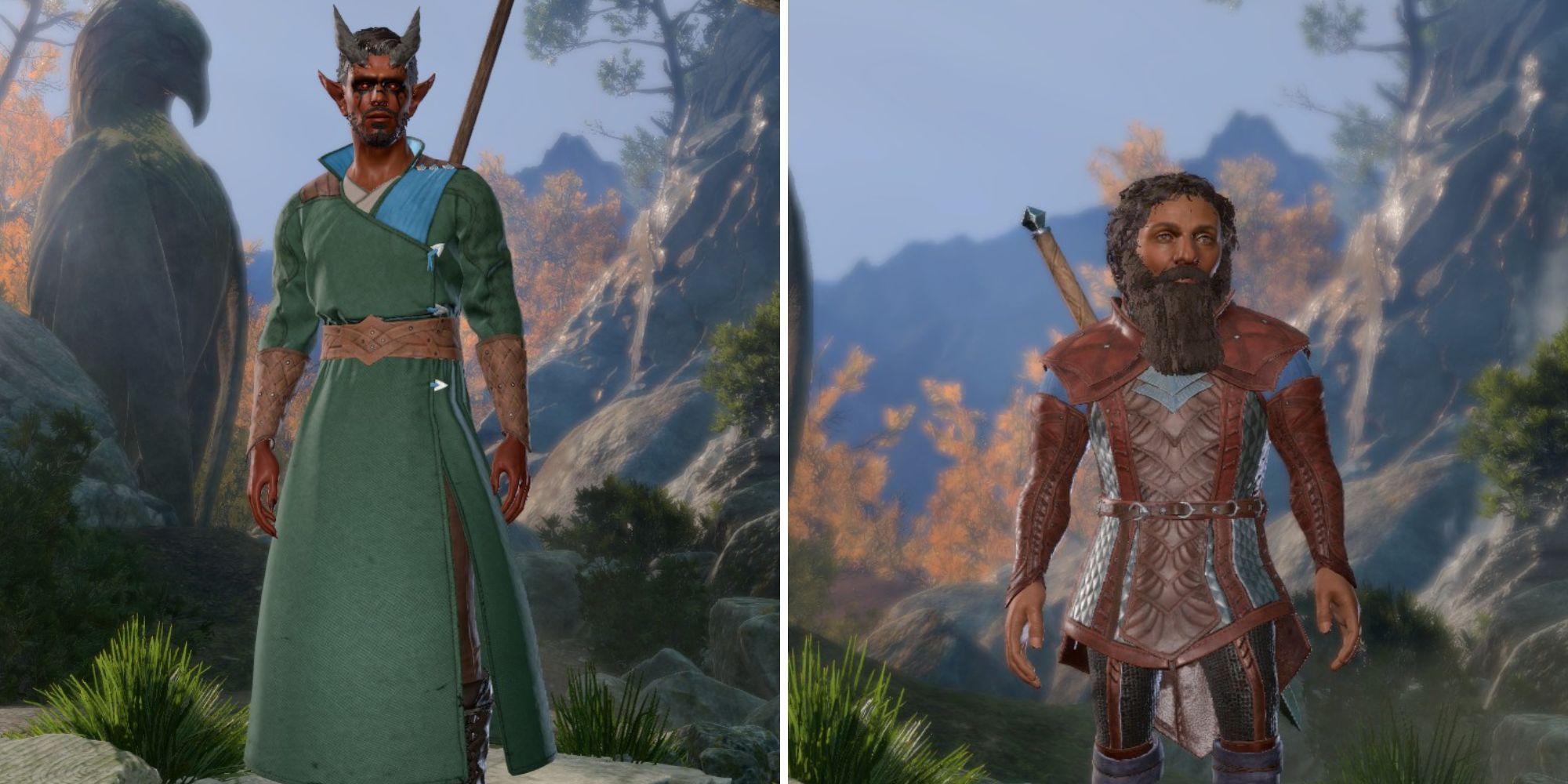
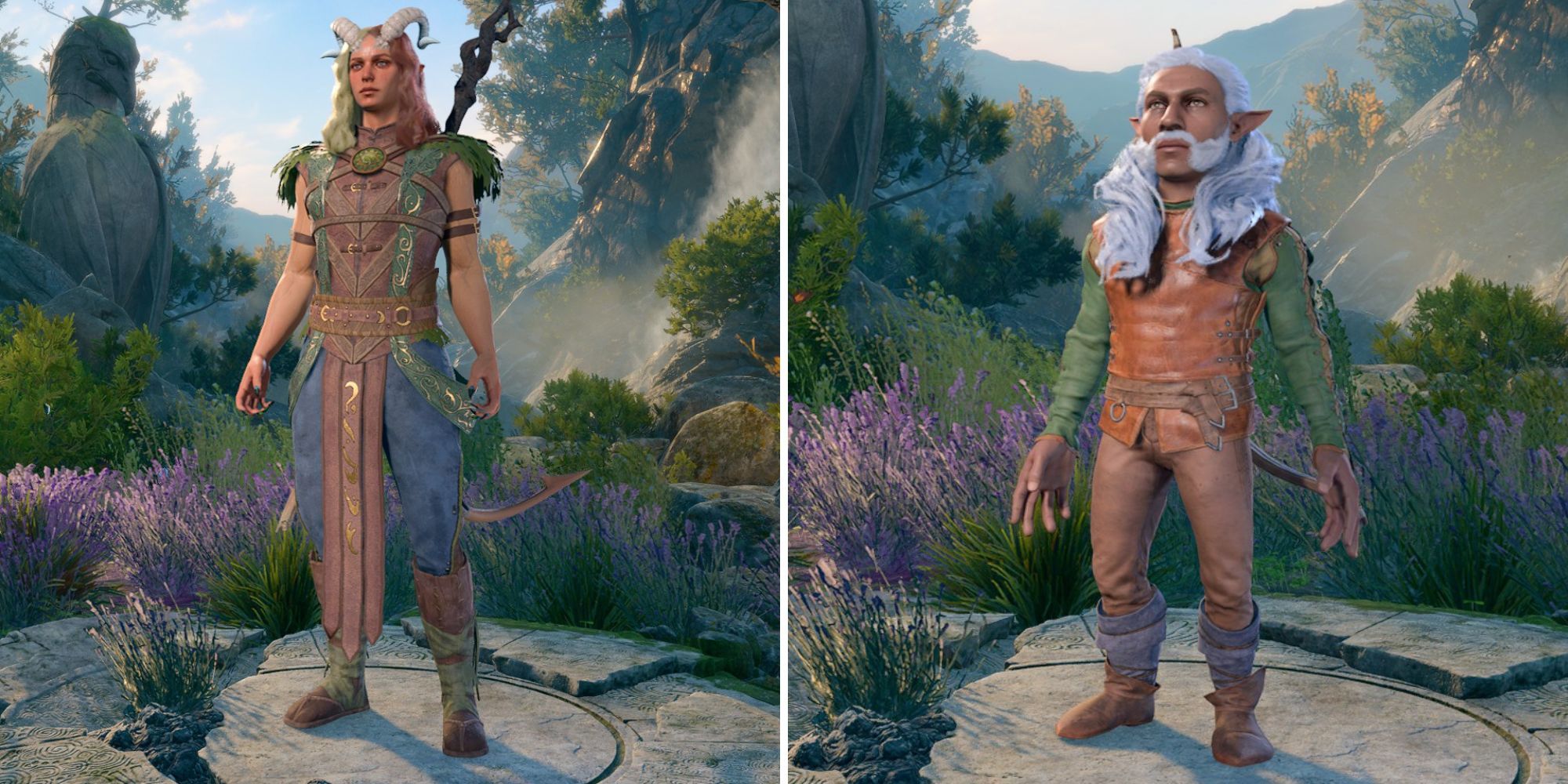
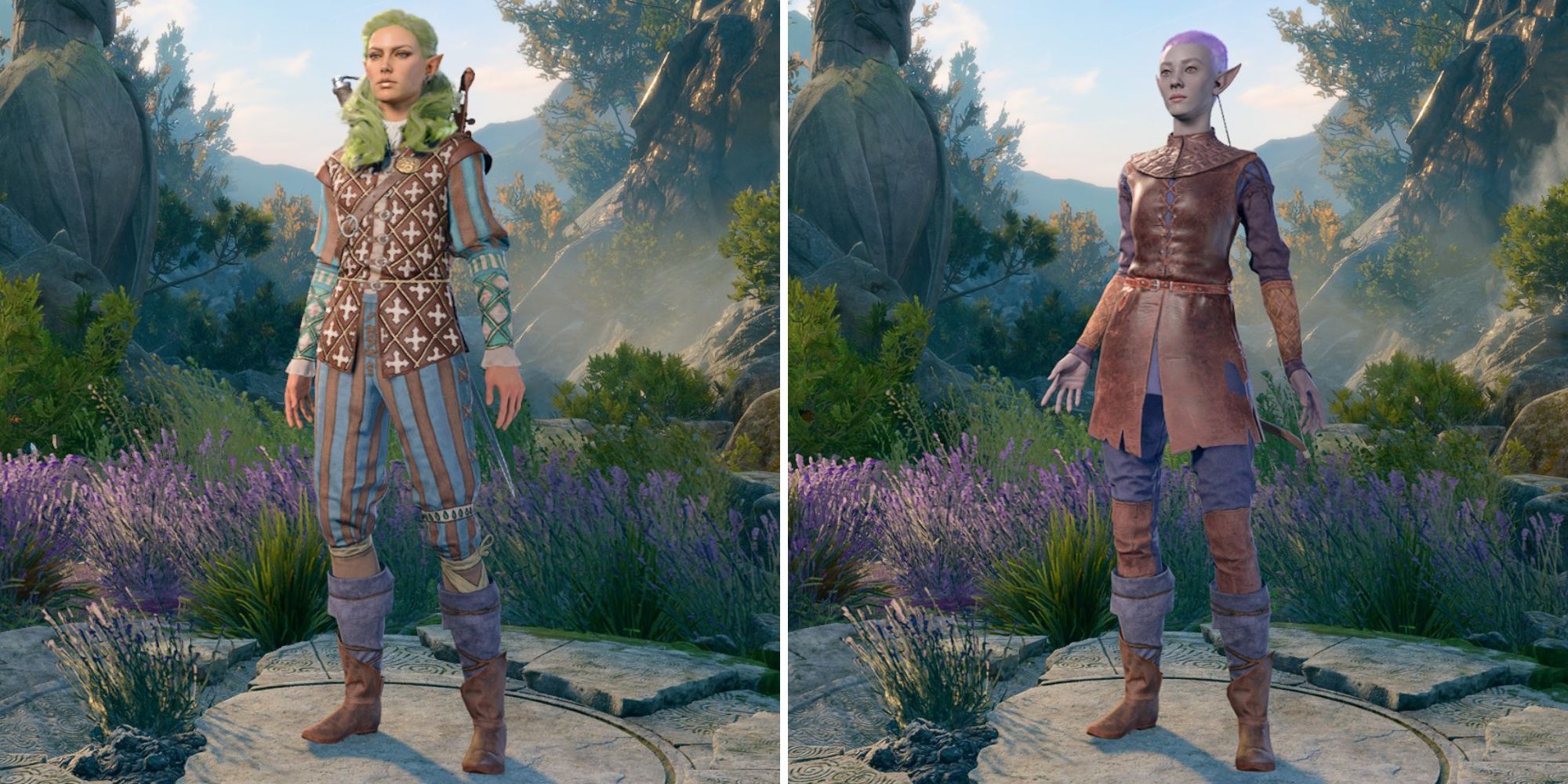
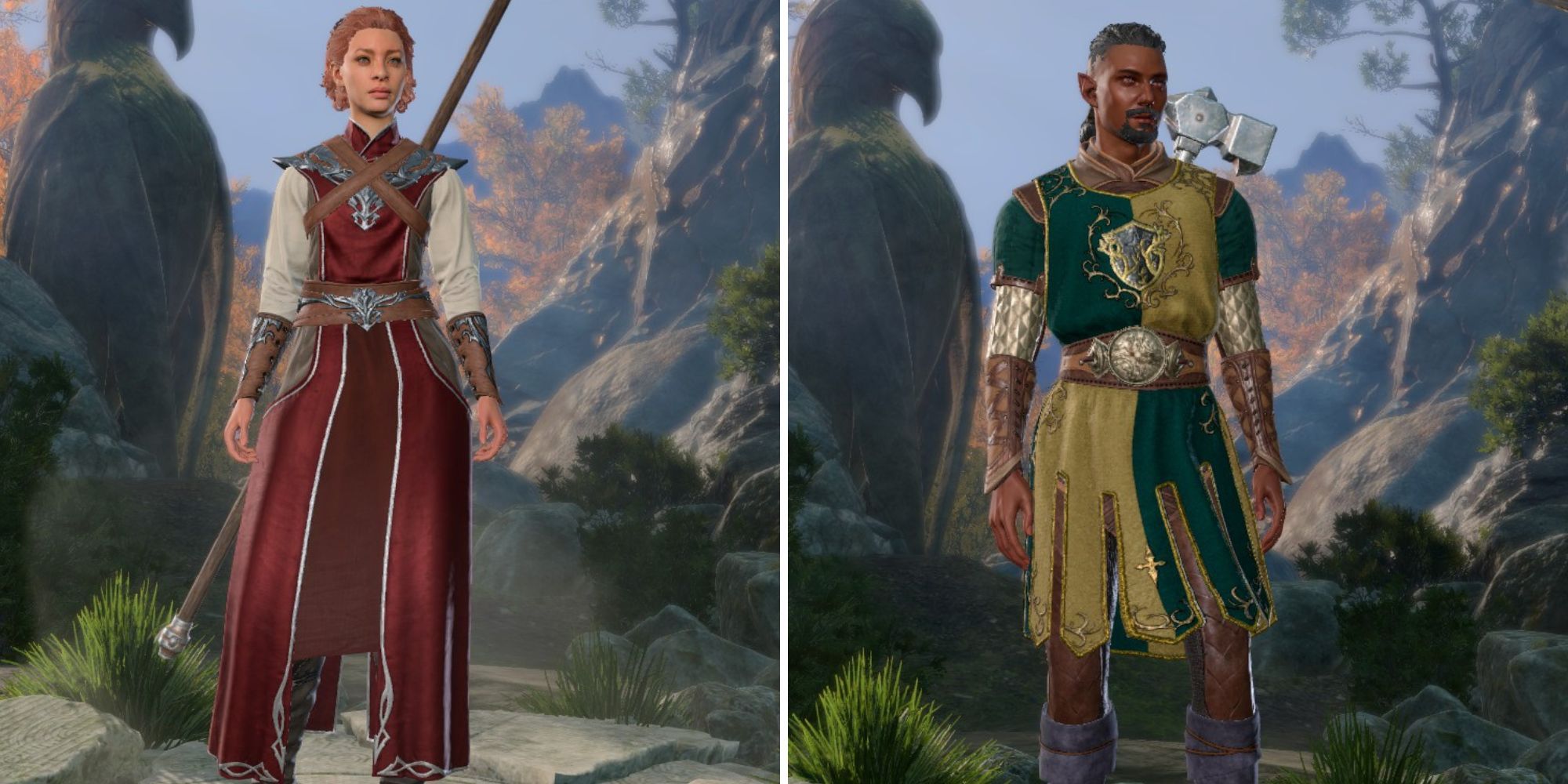
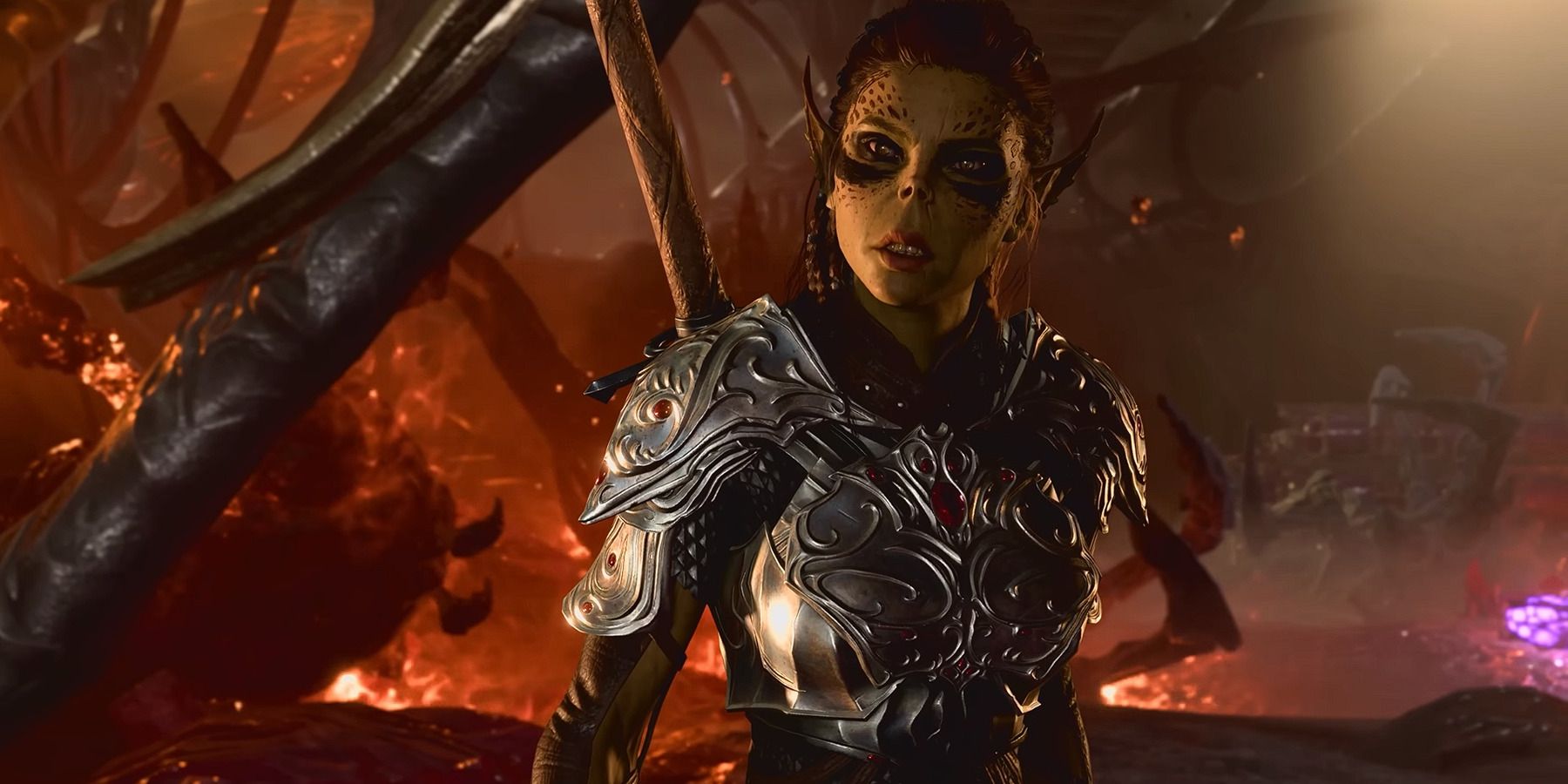
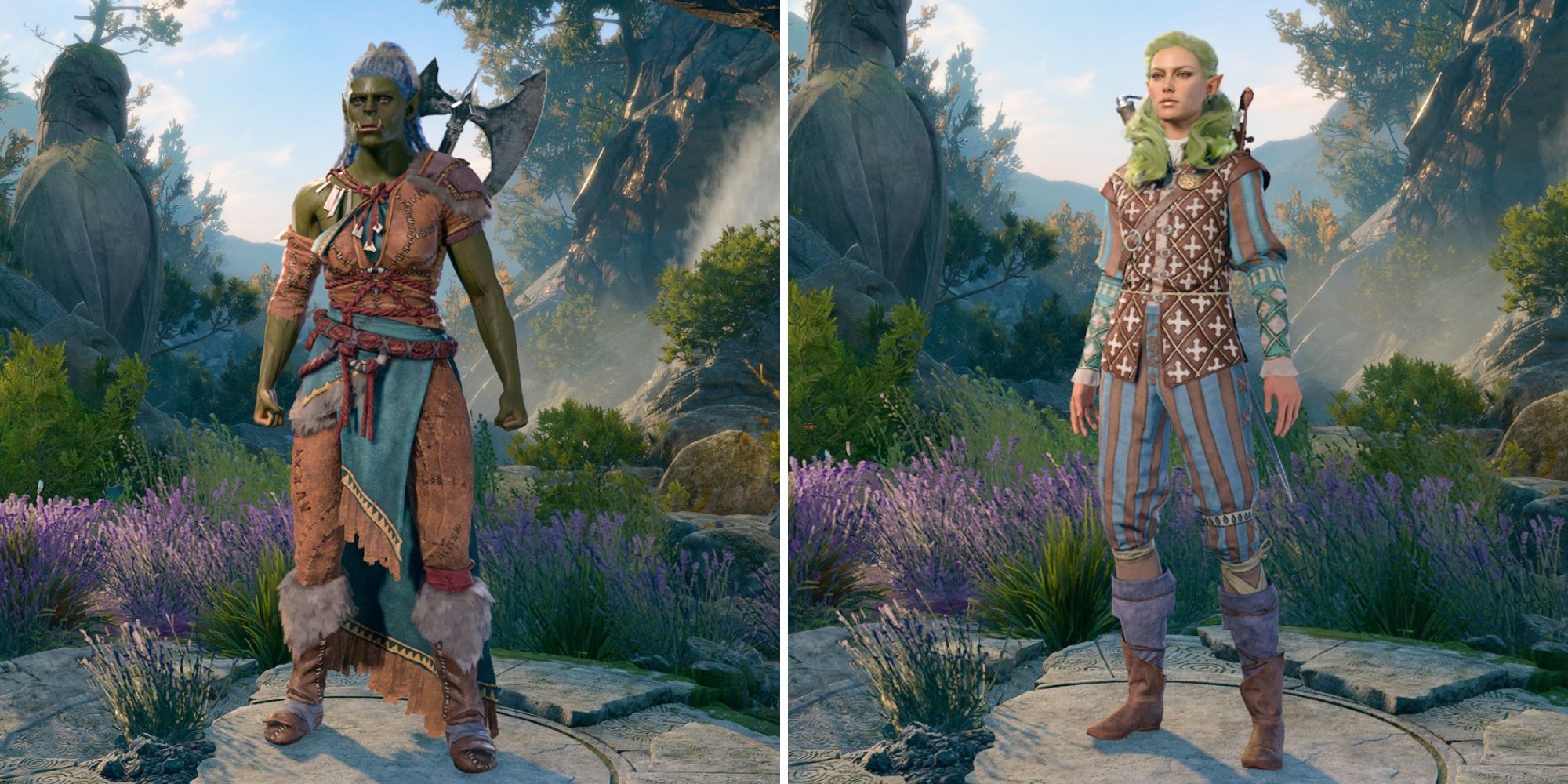








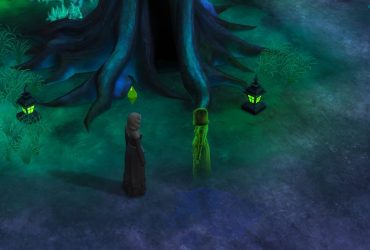

Leave a Reply